
The Bulgarian language is not an easy one for English speakers to learn. Being part of the Slavic language family, it differs quite a bit from the Germanic and Romance languages. Not only do learners have to get used to the Cyrillic alphabet, but they must also learn all the noun and adjective endings for different genders, the verb conjugations for different tenses, and so on.
Feeling intimidated already?
Don’t worry! BulgarianPod101 is here to encourage you.
Although it might take some time, learning Bulgarian is possible. In this article, we’ll teach you how to learn Bulgarian faster and more effectively for the best results.
There are three things you’ll need if you want to master the language:
- Motivation. In order to succeed, you need to maintain a high level of motivation during the entire learning process. One way you can do this is to stick to a schedule. Of course, in order to make a good plan, you’ll need to know how long it would take to learn Bulgarian to reach a beginner, intermediate, or advanced level. Don’t worry: Our guide will give you practical information regarding what kind of time commitment you’re looking at.
- Persistence. You’ll come across some difficult topics and subjects throughout the course of your studies, but it’s important to continue your learning in order to advance. Each challenge you overcome will make you a more successful language learner.
- Achievement. When you see your first marks of progress, you’ll be motivated to continue your studies. The more achievements you see, the more motivated you’ll be to learn the Bulgarian language in full.

 Table of Contents
Table of Contents
- 3 Factors That Play a Huge Role in Bulgarian Language Learning
- Comparison Between Bulgarian and Other Languages
- How Long Does it Take to Achieve aBeginner Level?
- How Long Does it Take to Achieve an Intermediate Level?
- How Long Does it Take to Achieve an Advanced Level?
- How BulgarianPod101 Can Help You Learn the Bulgarian Language
3 Factors That Play a Huge Role in Bulgarian Language Learning
There are three main factors that determine how long it takes to learn Bulgarian:
- Attitude. Having a positive attitude toward learning will make the process much easier and more enjoyable for you. Try to be as dedicated as possible, and view this as an opportunity to broaden your horizons.
- Time. The more time you study and practice the language, the less time it will take to get used to it.
- Attentiveness. Some people have a talent for learning foreign languages quickly. If you’re among them, consider yourself lucky! The learning process will require less effort from you compared to other learners. But regardless of your natural inclinations toward language learning, you should always strive to be attentive in your studies!

Comparison Between Bulgarian and Other Languages
The time it will take you to learn Bulgarian depends, to some extent, on your first language. If you’re a native English speaker, then you might find the Bulgarian language more difficult to learn than other languages (like French, Spanish, or Italian).
One of the reasons for this is the existence of a third gender (neuter) in Bulgarian, compared to the two genders (masculine and feminine) used in the Romance languages mentioned above. This means that Bulgarian learners have to learn more noun and adjective forms, as well as how to identify the three different genders.
In addition, Bulgarian belongs to the group of Slavic languages, which are more challenging to learn compared to the other European languages. There are many irregular forms of verbs, noun cases, exceptions to the rules, etc. that make studying more difficult.
However, learning the Bulgarian language is not Mission Impossible as long as you dedicate your time and efforts to achieving this goal. Below, we’ll discuss how long it takes to master each of the Bulgarian language levels based on research by the Foreign Service Institute (FSI).
How the Foreign Service Institute Ranks Bulgarian
The FSI has divided foreign languages into four categories. Category I languages are the most similar to English (and thus easier to learn), while Category IV languages are the least similar (and most difficult to learn).
Category I languages include Spanish, French, and Italian, for instance. These take an English speaker roughly 24 weeks (600 hours) of intensive study to reach speaking and reading proficiency.
On the other end of the scale are Category IV languages, which include Arabic, Korean, and Japanese, for example. These languages take about 88 weeks (2200 hours) to fully master.
So where exactly does Bulgarian fall?
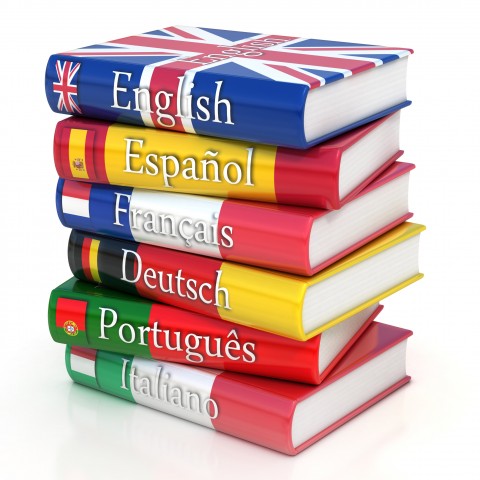
The FSI classifies Bulgarian as a Category III language. Other languages in this category include Czech, Polish, Turkish, and Greek. These languages take about 44 weeks (1100 hours) of study to master.
So if you would like to learn Bulgarian, you may need almost a full year of studying to gain fluency in speaking, reading, and writing, and to communicate freely with Bulgarians. Although this might seem like a long time, you can succeed if you’re persistent in your efforts and accumulate knowledge slowly but surely.
That said, you can start speaking Bulgarian way sooner! If you follow the lessons prepared by BulgarianPod101, you’ll be able to start communicating with native speakers within a few weeks. Don’t you think it’ll be worth the effort?
Additional Note: Keep in mind that Bulgarian learners who already know Russian or another Slavic language will have a much easier time picking up the language. This is because Bulgarian and other Slavic languages have many things in common.
How Long Does it Take to Achieve a Beginner Level?

What language skills are developed at the beginner level?
The beginner level encompasses levels A1 and A2.
It involves comprehension of everyday expressions and simple conversations. For example, you’ll be able to greet someone, introduce yourself, and ask questions to maintain a conversation at a simple level, if your interlocutor speaks slowly enough. You’ll also be able to express your needs to others.
How do you know whether you’re at the A1 or A2 level? If any of these things apply to you, you’re probably still at the A1 level:
- The Bulgarian language is completely new to you
- You may have lived for a short time in Bulgaria, but you know only a few words and phrases
- You may have started to study this language on your own, but without sufficient practice
How long does it take to become a beginner-level Bulgarian speaker?
It usually takes 2 months (50 hours) to master these basic Bulgarian language skills.
How can you reach this level faster?
If you would like to accelerate your progress, you can watch YouTube channels that teach the Bulgarian language to beginners. A good place to start is Learn Bulgarian with BulgarianPod101.com, where you can find hundreds of free lessons to help you advance much more quickly.
Using flashcards to remember new words is also very useful at this level of language study. Wondering how to learn Bulgarian faster using mobile flashcards? You can learn more about this method on our website!
Absolute Beginner Pathways for Bulgarian Learners
Here are some tips on how to learn Bulgarian online using BulgarianPod101.com!
- Start with the Bulgarian alphabet.
The Bulgarian alphabet is the foundation upon which you’ll build the rest of your language skills. Do not skip or postpone this step! We recommend starting with our free alphabet guide for absolute beginners, which will help you quickly become familiar with the Bulgarian alphabet. It might take you up to a week to feel completely comfortable with it, but it’s well worth the effort.
- Go through some well-structured audio lessons.
Becoming comfortable with audio material right from the start will really help speed up your progress. You can check out our 3-Minute Bulgarian series, which consists of 25 three-minute lessons suitable for beginners. You’ll get acquainted with topics such as self-introductions, greetings, manners, asking questions, making apologies, and much more. It might take you a couple of weeks to get through the series, depending on how many lessons you do each day.
- Study longer, more complicated beginner lessons.
Next, you might want to go through our Absolute Beginner pathway. It features 25 lessons (about 10 minutes each) that will help you better assimilate the information from the previous course and learn new vocabulary/skills. By the end of this series, you’ll be able to express your thoughts, needs, and questions more effectively. It might take 2-3 weeks of study and practice to feel confident speaking with your Bulgarian interlocutors.
Bonus: How much Bulgarian can you learn in 60 minutes? To find out, try out our 60-minute course Lessons for Your Flight to Bulgaria! If you’re an A2-level learner, you’ll find this easy to complete—but it’s still a great way to reinforce your vocabulary knowledge.
How much time will it take to reach beginner-level Bulgarian with BulgarianPod101.com?
| Mastering the Bulgarian Alphabet | Up to 1 week |
| 3-Minute Bulgarian Series | Up to 2 weeks |
| Absolute Beginner Pathway | Up to 3 weeks |
It takes a maximum of 6 weeks to reach the beginner Bulgarian level with our platform. Not that bad, right?
- We’ve also prepared a bunch of interesting 1-minute animated series videos that are well-suited for absolute beginners.
How Long Does it Take to Achieve an Intermediate Level?
What language skills are developed at the intermediate level?
The intermediate level (B1 and B2), can be summed up in just one word: communication.
At this stage, you have the ability to communicate about broad topics that aren’t too complicated. These topics usually involve hobbies, weather, work, education, details about locations, holidays, etc. You’ll also be able to describe experiences, events, ideas, projects, likes, and dislikes; you could lead conversations with local Bulgarians more freely.
At the B2 level, you’ll have additional fluency when communicating on a wider range of contexts.
Do any of the following points apply to you? Then it means you’re ready to start studying at the intermediate level.
- You have already completed the A2 level.
- You’re able to lead basic conversations.
- You require some extra practice in both spoken and written Bulgarian.
- You would like to get prepared for an upcoming Bulgarian language exam.
How long does it take to become an intermediate-level Bulgarian speaker?
It usually takes 4 months (80-90 hours) to master these intermediate Bulgarian-language skills. This timeframe applies to intensive learners who study every day for about 4 hours. For those who study every other day, it may take 8 or more months to achieve this stage.

How can you reach this level faster?
If this sounds like a long time to you, here are some tricks and tips on how to learn Bulgarian quickly at this stage:
- Watch Bulgarian movies with English subtitles online.
- Listen to popular Bulgarian songs with English subtitles.
- Watch popular satirical Bulgarian TV shows.
- Read Bulgarian books online.
- Make use of language learning apps.
- Watch free Bulgarian lessons on YouTube.
Also make sure to check out our list of 5 Tips to Reach Intermediate Level!
Intermediate-Level Pathways for Bulgarian Learners
After achieving a basic level of Bulgarian, you may find that things become harder to learn. The new information is more complicated and should be gradually added to your existing knowledge. You’ll need to engage in many more practical exercises to start advancing.
BulgarianPod101 has prepared appropriate lessons for this language level as well, to help intermediate learners accelerate their progress at this stage.
- All About
Our All About course consists of 15 short audio lessons that will help you learn all about the society and culture of Bulgaria. The total duration of this series is 1hr 51min.
- Conversational Phrases
This is another short course of 10 audio lessons with a total duration of just 10 minutes. It will get you acquainted with more conversational phrases and teach you common words you’ll need in your conversations.
- Essential Bulgarian for Emergencies
This course consists of 8 lessons, and it’s a very practical set that will help you develop intermediate-level skills you can use in a pinch.
- Level 3 Bulgarian
As you start to feel more confident with level B1, you can try out our Level 3 Bulgarian pathway. It features 25 lessons for a total duration of 6hrs 21min; there are also 10 assignments to complete. This course is aligned with level B1 of the CEFR scale.
How Long Does it Take to Achieve an Advanced Level?
What language skills are developed at the advanced level?
The advanced level is commonly referred to as C1-C2 and is very close to the native language level. The C2 level is considered to be the highest proficiency possible, and reaching it means you can use Bulgarian fluently in nearly all contexts.
Upon reaching an advanced level, you’ll be able to…
- …talk with native speakers fluently, without needing to grasp for specific words or phrases.
- …communicate with others about many different topics (personal experiences, professions, science, etc.).
- …build a variety of complex sentences in all tenses.
In addition, native Bulgarian speakers will be able to easily understand your thoughts and opinions when you speak.
It’s important to note that lessons at this level no longer focus on grammar. Usually, they include reading or listening to media on different subjects in the Bulgarian language, as well as lectures and workshops.

You’re ready to start studying advanced Bulgarian if the following points apply to you:
- You’ve completed the B2 level and you use Bulgarian grammar correctly.
- You’re planning to work or study in Bulgaria.
- You’re not satisfied with an average knowledge of Bulgarian and would like to gain fluency.
This level is definitely for those who are ready to double their efforts!
How long does it take to become an advanced-level Bulgarian speaker?
As we mentioned above, Bulgarian is a Category III language, meaning that it features significant cultural and linguistic differences from English.
To achieve proficiency in Bulgarian, intensive learners will need at least 1100 hours (44 weeks) of study. This equates to 5 hours per day, 5 days per week. You’ll need almost a full year of study to reach the C1 level of Bulgarian at this pace. If you study 2 hours a day (or less), you’ll need about 2 years to achieve this level.
How can you reach this level faster?
Although achieving the C1 level is not easy and takes a long time, there are some tips you could try in order to reach your goal faster:
- Find a native Bulgarian friend with whom you can often communicate.
- Spend a few months in Bulgaria to experience deep immersion into its language and culture.
- Watch special Bulgarian lessons intended for advanced learners.
- Continue to read, write, and listen in Bulgarian on a daily basis.
Advanced-Level Pathways for Bulgarian Learners
Are you serious about your studies and want some tips on how to learn Bulgarian faster? BulgarianPod101.com offers our advanced students plenty of fun and effective lessons to help enhance their skills.
- Level 5 Bulgarian
This advanced lesson pathway features 25 lessons for a total duration of 1hr 21min. This course is aligned with level C1 of the CEFR and covers topics including the top 10 Bulgarian tourist destinations, the top 10 Bulgarian leaders, and the top 10 Bulgarian writers.
- Listening Comprehension for Advanced Learners
Another great course is our Listening Comprehension for Advanced Learners series. Each lesson includes dialogues, answers to questions, and a full breakdown. The total duration of these 20 lessons is 1hr 9min.
- Video Culture Class: Bulgarian Holidays
We also offer a video culture class series that talks about different Bulgarian holidays. It consists of 25 lessons of 3-4 minutes each.
If you’re looking for even more ways to stay motivated, check out the Innovative Language 101 app for mobile devices. It allows you to learn Bulgarian anywhere, anytime! This innovative app is appropriate for all levels, so don’t miss out.
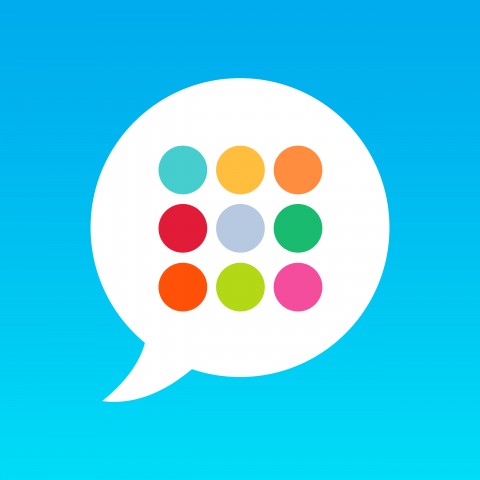
How BulgarianPod101 Can Help You Learn the Bulgarian Language
In this article, we talked about how long it takes to learn Bulgarian for each level of proficiency. We also discussed what’s expected of learners at each level and how to reach your learning goals faster with BulgarianPod101.com.
There’s still one key feature of our site we haven’t mentioned yet: MyTeacher for Premium PLUS members. With this service, you can get one-on-one tutoring and help from a native Bulgarian teacher. He or she can help you learn Bulgarian faster by guiding you step by step through the language—vocabulary, grammar rules, pronunciation, and more—so you can reach your desired proficiency level with little problem.
Before you go, we’re curious: How likely are you to start learning Bulgarian after reading this article? Feel free to reach out with any questions or concerns you still have—we’ll be glad to help!

An Extensive Guide to Bulgarian Business Phrases

The number of foreigners who visit Bulgaria for business purposes is increasing. The statistics announced by the National Statistical Institute of Bulgaria show that about twenty percent of the total visitors in 2019 were in the country for business purposes. Maybe you plan on joining that number in the near future!
Although the majority of Bulgarians speak some English, learning Bulgarian business phrases will help you more freely interact with Bulgarian business partners, build closer connections, and ensure that you’re properly understood.
Usually, advanced language learners study Bulgarian business words and phrases after they have a more solid foundation to step on. But even if you don’t have this solid foundation yet, you can start learning the most important Bulgarian business phrases with BulgarianPod101’s extensive guide. Start communicating right away with your Bulgarian business partners in their native language, and make a great impression!
 Table of Contents
Table of Contents
- Getting Started
- Nailing a Job Interview
- Interacting with Coworkers
- Sounding Smart in a Meeting
- Handling Business Phone Calls and Emails
- Going on a Business Trip
- How BulgarianPod101 Can Help You Learn Bulgarian Business Language
1. Getting Started
To start communicating in Bulgarian with your business partners or coworkers, you have to learn the most important rule related to Bulgarian business language.
The Most Important Bulgarian Business Rule
It’s obligatory to use the formal style for every verb you use in your business communications. Let’s examine a few examples:
Instead of:
- Здравей, как си?
Zdravey, kak si?
“Hello, how are you?” (informal style)
You have to use the polite form:
- Здравейте, как сте?
Zdraveyte, kak ste?
“Hello, how are you?” (formal style)
Instead of:
- Как върви твоят бизнес?
Kak varvi tvoyat biznes?
“How is your business going?” (informal style)
You have to use the polite form:
- Как върви Вашият бизнес?
Kak varvi Vashiyat biznes?
“How is your business going?” (formal style)
As you can see from the examples, the formal and informal expressions are the same in English, which is often a cause for error when foreigners speak Bulgarian in business settings. You have to pay extra attention and use only the formal style in your business communications!
The Most Common Bulgarian Business Words and Phrases
There are certain business Bulgarian phrases and words that you should know if you plan on doing business in Bulgaria. Here’s a list of the most common ones. We recommend that you learn them by heart using flashcards or other methods of effective language learning.
| Bulgarian | English |
| купувач (kupuvach) | “buyer” |
| продавач (prodavach) | “seller” |
| представител (predstavitel) | “representative” |
| запитване (zapitvane) | “inquiry” |
| преговори (pregovori) | “negotiations” |
| среща (sreshta) | “meeting” |
| цена (tsena) | “price” |
| търсене (tarsene) | “search” |
| приемам офертата (priemam ofertata) | “I accept the offer” |
| условия за доставка (usloviya za dostavka) | “terms of delivery” |
| условия за плащане (usloviya za plashtane) | “payment terms” |
| приемлив (priemlif) | “acceptable” |
| намаляване на цените на стоките (namalyavane na tsenite na stokite) | “reduction in commodity prices” |
| уговарям си среща (ugovaryam si sreshta) | “to make an appointment” |
| на едро (na edro) | “wholesale” |
| на дребно (na drebno) | “retail” |
| производител (proizvoditel) | “manufacturer” |
| доставчик (dostavchik) | “supplier” |
Practical Language Exercise
Try to make a basic dialogue with the Bulgarian business words and phrases from above.
Ready? Below, we’ve prepared a quick dialogue example for you to review. How does yours compare?

A:
Здравейте, аз съм представител на фирма за техническо оборудване на офиси. Търся продавач на офис столове на едро.
(Zdraveyte, az sam predstavitel na firma za tehnichesko oborudvane na ofisi. Tarsya prodavach na ofis stolove na edro.)
“Hello, I am a representative of an office equipment company. I’m looking for wholesale office chairs.”
B:
Здравейте, попаднали сте на правилното място. Ние сме най-големият доставчик на офис столове в града.
(Zdraveyte, popadnali ste na pravilnoto myasto. Nie sme nay-golemiyat dostavchik na ofis stolove f grada.)
“Hello, you have come to the right place. We are the city’s largest supplier of office chairs.”
A:
Бих желал да си уговоря среща с Вас за договаряне на условията за плащане и доставка.
(Bih zhelal da si ugovorya sreshta s vas za dogovaryane na usloviyata za plashtane i dostavka.)
“I would like to make an appointment with you to negotiate the payment and delivery terms.”
B:
Разбира се! В понеделник в 9:30 ч. сутринта удобно ли е?
(Razbira se! V ponedelnik v 9:30 chasa sutrinta udobno li e?)
“Of course! Is it convenient on Monday at 9:30 a.m.?”
Business Bulgarian: Ways to Say Hello
It’s important to learn how to greet your business partner in Bulgarian when you meet with him or her. Here are a few ways you can do this:
- Здравейте! Добре дошли!
Zdraveyte! Dobre doshli!
“Hello! Welcome!”
- Добро утро!
Dobro utro!
“Good morning!”
- Добър вечер!
Dobar vecher!
“Good evening!”
- Радвам се да Ви видя отново.
Radvam se da Vi vidya otnovo.
“I am glad to see you again.”
- Как сте?
Kak ste?
“How are you?”

Business Bulgarian: Ways to Say Goodbye
It’s equally important to know how to properly end your business conversation, especially if your interlocutor is long-winded and you have other tasks to do. In that case, you can choose one of the following phrases, or even combine a couple of them:
- Извинете, но сега трябва да тръгвам!
Izvinete, no sega tryabva da tragvam!
“Sorry, but I have to leave now!”
- Приятен ден!
Priyaten den!
“Have a nice day!”
- Очаквам с нетърпение следващата ни среща!
Ochakvam s netarpenie sledvashtata ni sreshta!
“I look forward to our next meeting!”
- Беше ми приятно, че се срещнахме!
Beshe mi priyatno, che se sreshtnahme!
“It was a pleasure to meet you!”
- Всичко най-добро! Успех!
Vsichko nay-dobro! Uspeh!
“All the best! Good luck!”
Do you feel like you need more phrases up your sleeve? BulgarianPod101 provides you with a valuable list of phrases for doing business successfully.
2. Nailing a Job Interview

Having a job interview with a Bulgarian employer is probably one of the biggest challenges for the foreigner. For this reason, we’ve included here the five most common questions and answers to help you nail your job interview.
Question #1
Разкажете ми за себе си.
Razkazhete mi za sebe si.
“Tell me about yourself.”
Answer:
Завършил съм магистратура по икономика и финанси и съм работил 5 години в банка.
Zavarshil sam magistratura po ikonomika i finansi i sam rabotil 5 godini v
“I have a Master’s degree in economics and finance and I have worked for five years in a bank.”
Obviously, you’ll need to change the information based on your own specialization and work experience. You can check out our Jobs / Work vocabulary list to find out the name of your occupation!
Question #2
Защо кандидатствате за тази работа?
Zashto kandidatstvate za tazi rabota?
“Why are you applying for this job?”
Answer:
Мисля, че с опита си на финансист бих могъл да съдействам за развитието на фирмата Ви.
Mislya, che s opita si na finansist bih mogal da sadeystvam za razvitieto na firmata Vi.
“I think that with my experience as a financier, I could contribute to your company’s development.”
Question #3
Къде се виждате след пет или десет години?
Kade se vizhdate sled pet ili deset godini?
“Where do you see yourself in five or ten years?”
Answer:
Аз съм перфекционист и се стремя постоянно да научавам нови умения и знания. Надявам се след 5 или 10 години да заемам по-висока длъжност във фирмата Ви.
Az sam perfektsionist i se stremya postoyanno da nauchavam novi umeniya i znaniya. Nadyavam se sled pet ili deset godini da zaemam po-visoka dlazhnost vav firmata Vi.
“I am a perfectionist and I constantly strive to learn new skills and knowledge. I hope that in five or ten years, I will be in a higher position in your company.”
Question #4
Как бихте реагирали в стресова ситуация?
Kak bihte reagirali v stresova situatsia?
“How would you react in a stressful situation?”
Answer:
Ще опитам да запазя спокойствие и да се мобилизирам максимално, за да завърша поставената задача в срок.
Shte opitam da zapazya spokoystvie i da se mobiliziram maksimalno, za da zavarsha postavenata zadacha v srok.
“I will try to stay calm and mobilize myself to complete the task on time.”
Question #5
Какво заплащане очаквате?
Kakvo zaplashtane ochakvate?
“What payment do you expect?”
Answer:
Справедливо, в зависимост от длъжността, която заемам и от натоварването.
Spravedlivo, v zavisimost ot dlazhnostta, koyato zaemam i ot natovarvaneto.
“Fair, depending on my position and workload.”
Being able to answer these questions in Bulgarian will ensure that you stand out among the other foreign candidates for the same position.
- → Need more? Find several valuable phrases and vocabulary words for Bulgarian job interviews on our website.

3. Interacting with Coworkers
If you’ve been approved for the position and will soon start working with your new Bulgarian team, it will be crucial to pick up even more business Bulgarian. In conjunction with a good knowledge of Bulgarian business etiquette, the phrases below can help you be well-liked by your new coworkers. The situations we outline are things you’ll likely encounter on a day-to-day basis, so memorizing even a few of these phrases can help you a lot in the long run!
Being Kind to Your Coworkers
The following sentences and phrases will help you show your gratitude toward your colleagues and will shorten the distance between you and the person you’re speaking to. Even if you don’t know much Bulgarian yet, learning how to communicate in your coworkers’ native language would be a great surprise for them, and they’ll appreciate this gesture of attention.
- Много благодаря за помощта!
Mnogo blagodarya za pomoshtta!
“Thank you very much for your help!”
- Оценявам съветите ти!
Otsenyavam savetite ti!
“I appreciate your advice!”
- Благодаря ти, че винаги мога да разчитам на теб.
Blagodarya ti, che vinagi moga da razchitam na teb.
“Thank you for always being dependable.”
- Радвам се, че мога да работя с теб!
Radvam se, che moga da rabotya s tep!
“I’m glad I can work with you!”
- Ти си страхотен колега!
Ti si strahoten kolega!
“You are a great coworker!”
You can find even more kind words in our list of the top 15 compliments in Bulgarian.

How to Politely Agree and Disagree with Your Coworkers
Unfortunately, whether you like it or not, you’re likely to be in disagreement with your coworkers at some point. Prepare yourself for such a situation by learning practical phrases for politely disagreeing.

- Не споделям това мнение.
Ne spodelyam tova mnenie.
“I do not share this opinion.”
- Не мога да се съглася с тази идея.
Ne moga da se saglasya s tazi ideya.
“I can’t agree with this idea.”
- Бих казал точно обратното.
Bih kazal tochno obratnoto.
“I would say exactly the opposite.”
- Това не винаги е вярно.
Tova ne vinagi e vyarno.
“This is not always true.”
- Не мисля така.
Ne mislya taka.
“I do not think so.”
And here are a couple of phrases you can use to express agreement!
- Съгласен съм с теб.
Saglasen sam s tep.
“I agree with you.”
- И аз мисля така.
I az mislya taka.
“I think so, too.”
How to Politely Interrupt Your Interlocutor
If your interlocutor is talkative or getting the conversation off-track, there are a few ways to politely interrupt to get the conversation on the right path again.
- Мога ли да добавя нещо?
Moga li da dobavya neshto?
“Can I add something?”
- Съжалявам, че ще Ви прекъсна, но…
Sazhalyavam, che shte vi prekasna, no…
“I’m sorry to interrupt, but…”
- Преди да продължите, бих искал да кажа нещо.
Predi da prodalzhite, bih iskal da kazha neshto.
“Before you go on, I’d like to say something.”
- Ако мога да добавя нещо…
Ako moga da dobavya neshto…
“If I may add something…”
- Само за момент, бих искал да кажа…
Samo za moment, bih iskal da kazha…
“Just a moment, I’d like to say…”

4. Sounding Smart in a Meeting
Now, let’s go over some useful Bulgarian for business meetings. These phrases will help you get your point across and make a lasting impression on your coworkers, partners, or boss.
| Bulgarian | English |
| Според мен… (Spored men…) | “According to me…” |
| Според моя опит…. (Spored moya opit…) | “In my experience…” |
| От моя гледна точка… (Ot moya gledna tochka…) | “In my point of view…” |
| Ако питате мен… (Ako pitate men…) | “If you ask me…” |
| Това, което искам да кажа е… (Tova, koeto iskam da kazha e…) | “What I want to say is…” |
| Струва ми се, че… (Struva mi se, che…) | “I believe that…” |
| Искам да отбележа, че… (Iskam da otbelezha, che…) | “I want to point out that…” |
| Бих предложил, че… (Bih predlozhil, che…) | “I would suggest that…” |
5. Handling Business Phone Calls and Emails
Business phone calls and emails often contain certain business vocabulary. The following tables will help you know which phrases and sentences to include in your business communications with Bulgarians.
Business Phone Calls
Following are the most common business Bulgarian phrases that you may hear or use during business phone calls with Bulgarians.
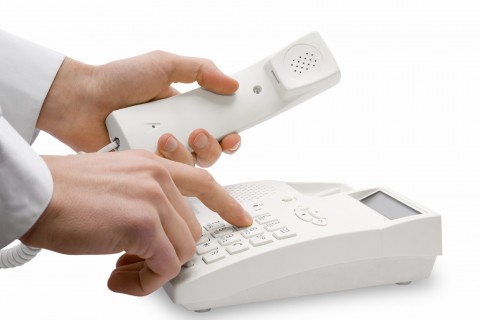
| Bulgarian | English |
| Здравейте, бихте ли ме свързали с г-н…? (Zdraveyte, bihte li me svarzali s gospodin…?) | “Hello, can you put me through to Mr. …?” |
| Останете на линия, моля. (Ostanete na liniya, molya.) | “Hold the line, please.” |
| Съжалявам, не успях да Ви чуя ясно. (Sazhalyavam, ne uspyah da Vi chuya yasno.) | “I am sorry, I couldn’t hear you clearly.” |
| Кой се обажда, моля? (Koy se obazhda, molya?) | “Who’s calling, please?” |
| Можете ли да повторите, моля? (Mozhete li da povtorite, molya?) | “Can you repeat, please?” |
| Мога ли да си уговоря среща с г-н…? (Moga li da si ugovorya sreshta s gospodin…?) | “Can I make an appointment with Mr. …?” |
| Благодаря Ви, дочуване! (Blagodarya Vi, dochuvane!) | “Thank you, goodbye!” |
| Ще се обадя по-късно.(Shte se obadya po-kasno.) | “I will call you later.” |
- ➢ You can find more useful phrases for a business phone call on BulgarianPod101.com.
Business Emails
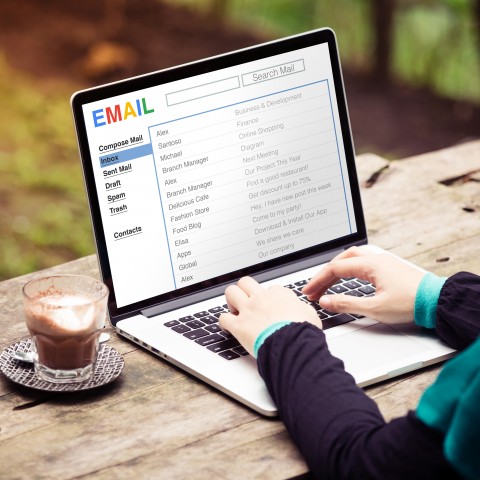
If you have to write business emails, you can include the following Bulgarian business letter phrases to give them a more formal appearance.
| Bulgarian | English |
| Уважаеми г-н/ Уважаема г-жо, (Uvazhaemi gospodin/ Uvazhaema gоspozho,) | “Dear Mr./Mrs.,” |
| Благодаря за Вашето писмо/предложение. (Blagodarya za Vasheto pismo/predlozhenie.) | “Thanks for your letter/proposal.” |
| Бих желал да Ви представя накратко нашата компания. (Bih zhelal da Vi predstavya nakratko nashata kompaniya.) | “I would like to briefly introduce you to our company.” |
| Интересувате ли се от…? (Interesuvate li se ot…?) | “Are you interested in…?” |
| При интерес, моля, отговорете на това писмо. (Pri interes, molya, otgovorete na tova pismo.) | “If interested, please reply to this letter.” |
| С най-добри пожелания! (S nay-dobri pozhelaniya!) | “Best regards!” |
| С уважение.(S uvazhenie.) | “With respect.” |
6. Going on a Business Trip

Your business trip in Bulgaria will be successful if you learn and use the following words and sentences:
| Bulgarian | English |
| резервация (rezervatsiya) | “booking” |
| Мога ли да направя резервация за хотел? (Moga li da napravya rezervatsiya za hotel?) | “Can I book a hotel?” |
| Колко време трае пътуването? (Kolko vreme trae patuvaneto?) | “How long does the journey take?” |
| Кога пристигаме? (Koga pristigame?) | “What time do we arrive?” |
| Бих искал да пътувам до… (Bih iskal da patuvam do…) | “I’d like to travel to…” |
| Може ли два билета за… (Mozhe li dva bileta za…) | “May I have two tickets to…” |
| еднопосочен билет (ednoposochen bilet) | “one-way ticket” |
| двупосочен билет (dvuposochen bilet) | “round trip” |
To learn even more vocabulary for your next business trip, listen to BulgarianPod101’s lesson on talking about travel plans.
7. How BulgarianPod101 Can Help You Learn Bulgarian Business Language
As a Bulgarian language platform that consists of materials and lessons to help you improve your language skills, BulgarianPod101 can be a great source for studying the most common business phrases in Bulgarian. If you enjoyed this comprehensive lesson, be sure to create your free lifetime account. This will allow you to study our database for free for seven days before upgrading. If you feel the need for personal guidance by a native language professional, you can upgrade to Premium PLUS and utilize our MyTeacher service. Your Bulgarian teacher will help you learn everything you need to know about using Bulgarian phrases for business in real life.
Before you go, please let us know if you found this guide helpful and what additional questions it raises for you. We look forward to hearing from you and will help out the best we can!
Happy learning, and good luck with your business endeavors.

The Best YouTube Channels to Learn the Bulgarian Language

Is it possible to make studying a foreign language fun? Yes, it is!
Studies show that the more entertaining your language practice is, the quicker and easier you’ll pick that language up.
So, what’s one way you can make learning Bulgarian fun again? Watching YouTube.
Here are just a few benefits of supplementing your regular studies with Bulgarian language YouTube content:
- Watching Bulgarian YouTube channels is a great way to practice your listening skills.
- You choose the topic and the time. By picking channels or videos that interest you, you’ll learn new vocabulary related to those topics in a more natural way.
- You’ll get a sense of how the language works without studying all of those boring grammar rules.
- Bulgarian YouTube channels are a great way to replace real-life communication with Bulgarians, especially when you don’t have the opportunity to meet and interact with the local people.
- Sometimes, textbooks contain old phrases that are no longer used in everyday life. But Bulgarian YouTubers will keep you up-to-date with the language as it’s used today.

BulgarianPod101 gives you the opportunity to take advantage of all these benefits and learn Bulgarian in the easiest and most fun way: by watching your favorite Bulgarian YouTube channels. This comprehensive guide contains not only a list of the best YouTube channels for learning Bulgarian, but also tips on how to use these resources effectively.
What are you waiting for? Start familiarizing yourself with spoken Bulgarian right away!
 Table of Contents
Table of Contents
- How to Learn Effectively with Bulgarian YouTube Channels
- Господари на ефира I Gospodari na efira
- HeyKids – Детски Песни
- Кухнята на Звездев – La Cocina Búlgara
- The Clashers
- academico
- LILI IVANOVA
- Новините на NOVA
- Learn Bulgarian with BulgarianPod101.com
- Why is BulgarianPod101 the Best Place to Learn Bulgarian?
1. How to Learn Effectively with Bulgarian YouTube Channels
Our list of the top Bulgarian YouTube channels will do you little good if you don’t know how to make the most of your watching time. To take full advantage of these resources, BulgarianPod101 suggests that you follow the steps below.
Step 1: Get used to the language!
Getting used to the spoken language takes time! Don’t expect to get something from the very first video.
But this doesn’t mean that you have to give up! There are numerous resources out there that can make the adaptive process easier for you, such as our vocabulary lists and audio lessons.
- ➢ BulgarianPod101 has also prepared this list of the most common Bulgarian phrases you need to learn!
Step 2: Prepare for the specific topic beforehand!
Getting prepared upfront for the topic you’re going to watch will help you a lot. In particular, we recommend that you learn the most common vocabulary related to that topic. For example, if you intend to watch a culinary show, you can learn the following Bulgarian words and try to recognize them in the dialogue:
- рецепта (retsepta) – recipe
- продукти (produkti) – products
- ястие (yastie) – dish
- картофи (kartofi) – potatoes
- месо (meso) – meat
- фурна (furna) – oven
- минути (minuti) – minutes
- ➢ Of course, your list could be much more extensive than this one. You can get more words for your list from BulgarianPod101’s cooking vocabulary list.
Step 3: Make use of the subtitles!
One of YouTube’s greatest features is the option of turning the subtitles on, which will enable you to read the Bulgarian text while it’s spoken. Just think what a great reading, listening, and comprehension exercise this could be! Moreover, if you find it difficult to comprehend the meaning of something, turn on the English subtitles instead. This will help you understand the meaning of any unknown words and memorize them better.
Step 4: Turn off the subtitles!
As soon as you’ve started to understand the greater part of the dialogue and have memorized some of the most commonly used phrases, it’s time to turn off the subtitles and move on to the next level: pure listening.

Step 5: Adjust the speed when needed!
YouTube’s speed regulation button is of great help to foreign language learners. It allows you to adjust the speed of speech, meaning that you can slow down any parts that you’re struggling to understand and listen word-for-word.
We recommend that you understand at least eighty percent of the video before you go on to the next one. This means that you’ll have to watch the same video multiple times, until you get used to most of the words and phrases. This will significantly reduce the amount of time it takes you to understand Bulgarian.
Now, it’s time to present you with our picks for the best YouTube channels for learning the Bulgarian language!
2. Господари на ефира I Gospodari na efira

Category: Humoristic TV show
Link to the YouTube Channel: https://www.youtube.com/channel/UC3Wyun_X7gtPavYKL-_i-7Q
Example Video Link: https://www.youtube.com/watch?v=5okwH6V1eqI
Level: Intermediate – Advanced
Everyone needs a good laugh now and then, so we’ll start our list with this popular Bulgarian TV YouTube channel. With more than 178 thousand followers, this show is well-known across Bulgaria for its humorous (and oftentimes silly) content.
We recommend this channel for intermediate and advanced learners, as it can help you practice real-life conversational phrases. In addition, you’ll gain some insight into Bulgarian humor!
3. HeyKids – Детски Песни

Category: Children’s songs
Link to the YouTube Channel
Example Video Link
Level: Beginner – Intermediate
This channel is a great option for beginners who would like to learn the Bulgarian language basics on YouTube. The children’s songs featured on this channel can be easily memorized, making it a great resource for growing your Bulgarian vocabulary.
One great feature of this channel is its Bulgarian subtitles, which will help learners better understand the song lyrics—plus, they’ll make it easier for you to start singing along. If you already know the basics, you can still enjoy listening to a few tales in Bulgarian and practice your listening comprehension.
4. Кухнята на Звездев – La Cocina Búlgara

Category: Culinary TV series
Link to the YouTube Channel
Example Video Link
Level: Beginner – Intermediate
Do you enjoy watching culinary shows? You can combine your interests with your Bulgarian studies by watching this popular cooking show, featuring masterchef Ivan Zvezdev.
Watching this Bulgarian food YouTube channel will not only teach you how to make great recipes, but it will also familiarize you with important Bulgarian vocabulary related to ingredients and kitchen utensils. Although there are no subtitles, written Bulgarian instructions often appear on the screen. And, as the title of the channel suggests, you can also find a few Spanish series with Bulgarian subtitles.
5. The Clashers
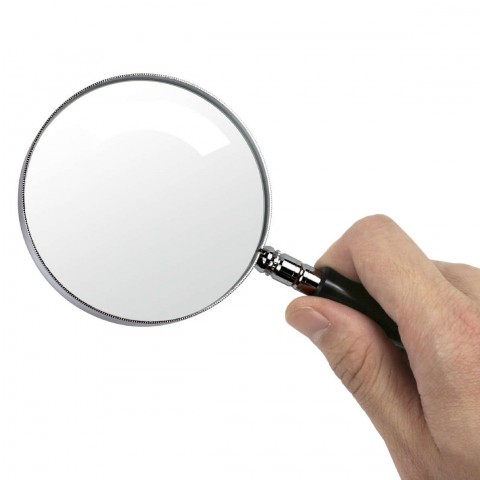
Category: Interesting facts
Link to the YouTube Channel
Example Video Link
Level: Intermediate – Advanced
If you’re curious about the world around you and love to discover new things, we think you’ll enjoy watching The Clashers. This channel’s main host, Slavi, is among those YouTubers that can help you learn Bulgarian in an entertaining way, especially if you’re already at the intermediate level.
Much of their content consists of Top 10 charts, 50 amazing facts videos, product reviews, and vlogs. This variety of fascinating content can help Bulgarian learners practice the vocabulary they’ve learned so far and learn more new words related to a specific topic.
6. academico

Category: Short school lessons
Link to the YouTube Channel
Example Video Link
Level: Beginner – Intermediate
The academico channel provides short lessons on school subjects for Bulgarian students up to seventh grade. Because these videos are designed for younger viewers, they’re easy to understand, funny, and feature clearly spoken language. This combination of factors makes the channel perfect for Bulgarian language learners!
Additionally, learners can begin picking up new Bulgarian vocabulary in a simple format, starting with first grade videos and moving up to seventh.
7. LILI IVANOVA

Category: Pop songs
Link to the YouTube Channel
Example Video Link
Level: Intermediate – Advanced
If you’re interested in discovering Bulgarian songs, YouTube has a plethora of channels to help you out! But we recommend Lili Ivanova’s channel for a few reasons.
Lili is a beloved pop singer in Bulgaria, with a beautiful voice and touching music. In addition to hearing some of Bulgaria’s best music, you’ll be able to test your listening comprehension skills and pick up new vocabulary by following along with the lyrics.
8. Новините на NOVA

Category: TV news
Link to the YouTube Channel
Example Video Link
Level: Intermediate – Advanced
Новините на NOVA is the most popular news channel in Bulgaria, providing updated information about all areas of life in Bulgaria. This Bulgarian news YouTube channel allows you to improve your language skills while staying up-to-date on things going on in the country.
The news presenters speak clearly, making it easier for learners to improve their own pronunciation. This channel is also a great way to learn the economical, political, tourist, and social situation in the country before traveling there.
9. Learn Bulgarian with BulgarianPod101.com
Category: Language learning
Link to the YouTube Channel
Example Video Link
Level: Beginner – Advanced
The BulgarianPod101 YouTube channel provides learners with the opportunity to improve their Bulgarian skills, regardless of their current level. We help people learn basic, intermediate, and advanced Bulgarian—without needing to pay for a private Bulgarian teacher.
Our channel offers a lot of unit lessons, grammar and vocabulary learning videos, exercises, and more. Moreover, you can turn on the subtitles to understand the content in your own language. In addition to listening, reading, and overall comprehension practice, we implement learning strategies that will help you learn Bulgarian better and faster.
10. Why is BulgarianPod101 the Best Place to Learn Bulgarian?
Whether you have three minutes a day to study Bulgarian or an hour, systematic learning is the best approach for gaining new knowledge. Our channel, Learn Bulgarian with BulgarianPod101.com, offers three-minute lessons for those who don’t have much time, as well as ten-minute educational videos and twenty- to thirty-minute videos for those with more time. You’ll even find videos with a duration of two hours or more!
Our videos are made by professional linguists who are native Bulgarians, so you can be sure that their pronunciation is correct. Moreover, the channel provides a free way to start learning the language, from Absolute Beginner all the way up to Advanced. Whether you want to learn basic vocabulary for daily conversations or need phrases for business negotiation—or anything in-between—we have you covered.
We provide a rich variety of content, and regularly update our channel with new videos. The practical lessons and exercises on our channel can help you overcome your language barriers and start communicating freely with native Bulgarians.
If you would like to dig even deeper into the grammar, you can turn to the BulgarianPod101 website, which offers great guides for everyone. We also offer a MyTeacher service for Premium PLUS members, where you can find a professional Bulgarian teacher to speed up your learning. You can also use our free app, which is available for all kinds of smartphones.
Did you like our comprehensive guide on the ten best Bulgarian YouTube channels for learners? We would love to hear from you in the comments. Also feel free to share with us which of these channels you want to watch first, and why. We look forward to hearing from you!

How Hard is it to Learn Bulgarian? Overcome the Difficulties.

Learning a new language is like starting a new journey! It opens up hundreds of opportunities for you and acquaints you with different ways of thinking, unknown cultures, unique people, a rich history, and ways of life you may not be familiar with. By learning a country’s language, you also learn about that country’s cuisine, festivals, traditions, and customs. And considering the rich cultural heritage of Bulgaria, Bulgarian is one language you’ll love learning.
That said, how hard is it to learn Bulgarian?
If you start by learning the grammar—all those endless verb forms and conjugations, as well as the adjectives and their forms—there’s a good chance that you’ll soon become lost in the multiple rules and give up. This is not a good way to start, especially if you’re an absolute beginner.

As you can see, how difficult Bulgarian is for you depends on how you choose to learn. Yes, learning a new language can be a challenge, but anyone can do it! BulgarianPod101 is here not only to motivate you in your studies and to dispel all your doubts, but also to make the process of learning fun and pleasurable—just like each new journey should be.
So let’s take a look at what things might make the Bulgarian language hard to learn and how to overcome them. See for yourself that it is easy to learn Bulgarian with BulgarianPod101.
 Table of Contents
Table of Contents
- Is it Hard to Learn Bulgarian?
- What are the Hardest and Easiest Parts of Learning Bulgarian?
- I Want to Learn Bulgarian. Where Should I Start?
- Five Tips for New Bulgarian Learners
- Why Don’t You Start Learning Bulgarian Right Away? (4 Practical Exercises)
- Why is BulgarianPod101 Great for Learning Bulgarian?
1. Is it Hard to Learn Bulgarian?
The very first challenge that new Bulgarian-learners face is studying the Cyrillic alphabet. Yes, it’s completely different from the Latin alphabet, but fortunately, there’s an easy way to learn the Bulgarian alphabet. Let’s study it together!
How to Learn the Bulgarian Alphabet Easier
To make the learning process easier, let’s review the Bulgarian alphabet in chunks. We’ll start with the similarities that you can easily recognize between the two alphabet systems.
| Bulgarian Letters | English Letters |
| Аа | Аа |
| Бб | Bb |
| Дд | Dd |
| Ее | Ee |
| Зз | Zz (note that this Bulgarian letter looks like the cursive ‘Z’ in English) |
| Кк | Kk |
| Мм | Mm |
| Оо | Oo |
| Тт | Tt |
Isn’t it great that you already know nine Bulgarian letters? Let’s move on.
The next thing to remember is that:
- The Bulgarian В is not the English B
- The Bulgarian H is not the English H
- The Bulgarian P is not the English P
Here’s how to remember them:
| Bulgarian Вв | English Vv |
| Bulgarian Hн | English Nn |
| Bulgarian Pр | English Rr |
So far, we’ve covered twelve out of thirty Bulgarian letters. Not bad, right? Let’s move forward.
| Bulgarian Letters | English Letters |
| Гг | Gg |
| Пп | Pp |
| Фф | Ff |
| Лл | Ll |
| Уу | Uu (pronounced like “oo” in “tool”) |
| Хх | Hh |
| Ии (like opposite N) | Ii (pronounced like “i” in “igloo”) |
| Cc | Ss |
Twenty letters so far. Let’s practice their pronunciation! Try to read the following words, and then check their pronunciation in parentheses below! To get a headstart in your vocabulary learning, you can also make flashcards for these words.
- баба, каза, мама, коза, мотор, паун, доктор, ухо
(baba, kaza, mama, koza, motor, paun, doktor, ooho)
grandma, said, mom, goat, motor, peacock, doctor, ear
Excellent! Now, let’s study ten more Bulgarian letters.
Although English-speakers are not accustomed to these next letters (as most of them are pronounced as a combination of two or more sounds), we believe that you’ll get used to them with some practice. For example, you can study two letters a day (one in the morning and one in the evening) and have them memorized in just five days!
| Bulgarian Letters | English Letters |
| Жж | Pronounced like ZH or like S in “treasure” |
| Йй | Pronounced like Y in “yes” |
| Цц | Pronounced like TS in “fits” |
| Чч | Pronounced like CH in “church” |
| Шш | Pronounced like SH in “shoe” |
| Щщ | Pronounced like SHT in “shtick” |
| Ъъ | Pronounced like U in “turn” |
| ь | Soft sign |
| Юю | Pronounced like YU or U in “menu” |
| Яя (like a backwards R) | Pronounced like YA in “yacht” |
The easiest way to get used to these letters is through practical reading exercises. For example, try to read the following word:
- мартеница
(martenitsa)
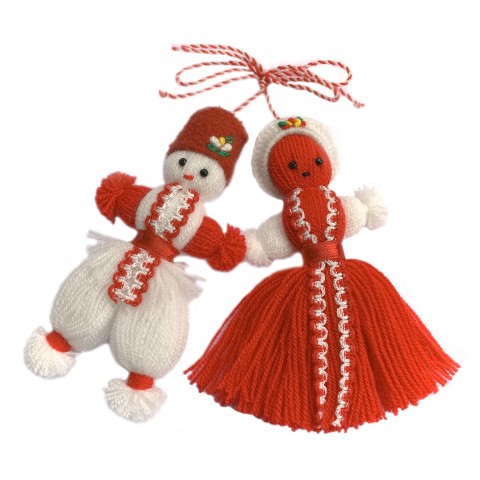
You can read more about the Bulgarian мартеница, which will help you learn more about the traditions of this country.
Here are a few more words for practicing your Bulgarian reading skills:
- щастие, шал, човек, цвете, жаба
(shtastie, shal, chovek, tsvete, zhaba)
happiness, scarf, man, flower, frog
Don’t forget to make more flashcards! We’ll be practicing some of these words again in a later section of this article. Hopefully, this new approach to learning the Bulgarian alphabet will help you memorize it easier.
- ➢ BulgarianPod101 has prepared a detailed guide to the Bulgarian alphabet that can be downloaded here for free. We highly recommend it for beginners!
2. What are the Hardest and Easiest Parts of Learning Bulgarian?
Now that you’ve overcome the first difficulty, which is learning the Bulgarian alphabet, let’s take a look at what makes Bulgarian hard to learn (and which things make it pretty easy).
What is the Hardest Part of Learning Bulgarian?
One of the biggest difficulties for Bulgarian-learners is pronunciation, especially when Bulgarian textbooks make it seem even more complicated. But how difficult is it to learn Bulgarian pronunciation and phonetic changes, really? Well, once you have the alphabet down, the process really isn’t so difficult. These five tips will help you a lot!
Tip #1 – Imitate native Bulgarian-speakers!
The more you listen to how natives speak, the better. Doing so will allow you to get used to the proper pronunciation and the accents. Just like little children, we learn better by imitating others than by reading rules and instructions.
Tip #2 – Start reading short Bulgarian texts by repeating what you hear!
The best way to do this is by listening to a dialogue between native speakers and repeating what they say. Luckily, BulgarianPod101.com has tons of audio and video lessons featuring native speaker dialogues with transcripts. Perfect for practicing your reading, listening, and speaking skills at the same time!

Tip #3 – The more you practice, the better your pronunciation will get!
While you can’t expect to have perfect pronunciation after only a month of practice, practicing every day will significantly improve your pronunciation over time. This is because you’ll get used to the difficult words through exposure, and they won’t seem so hard anymore.
Tip #4 – Don’t be afraid to talk to others in Bulgarian!
This is the most important tip! Even if your pronunciation isn’t very good yet, try to speak daily with native Bulgarians. This will improve your pronunciation little by little.
Tip #5 – Learn the longer words in chunks!
The long words are hardest to pronounce. But if you divide them into syllables, the pronunciation will seem much easier. For example:
- Здравейте
(Zdraveyte)
“Hello” – for formal or plural form
Can be divided into:
Здрав – ей – те – and the accent falls on the second syllable
- Благодаря
(Blagodarya)
“Thank you!”
Can be divided into:
Благо – да – ря – and the accent falls on the last syllable
- ➢ On BulgarianPod101.com, you can find our Ultimate Bulgarian Pronunciation Guide, which will help you overcome the hardest part of learning Bulgarian.
Is it Hard to Learn Bulgarian Verbs?
The answer is yes, unless you know this trick to memorize them easier:
Divide the verbs into groups with common roots and different prefixes that change the meaning of each verb. Here’s an example of such a group:
| Bulgarian verb + pronunciation | English meaning |
| казвам (kazvam) | “I say” |
| приказвам (prikazvam) | “I speak” |
| разказвам (razkazvam) | “I narrate” |
| доказвам (dokazvam) | “I prove” |
| наказвам (nakazvam) | “I punish” |
| показвам (pokazvam) | “I show” |
| изказвам (izkazvam) | “I express” |
| наприказвам (naprikazvam) | “get my fill of talking” |
And here’s another example:
| Bulgarian verb + pronunciation | English meaning |
| пиша (pisha) | “I write” |
| впиша (vpisha) | “I еnter” (like entering a name on a list) |
| напиша (napisha) | “I write down” |
| допиша (dopisha) | “I finish writing” |
| запиша (zapisha) | “I note down” |
| надпиша (nadpisha) | “I inscribe” |
| изпиша (izpisha) | “I cover with writing” |
| подпиша (podpisha) | “I sign” |
| препиша (prepisha) | “I transcribe” |
| припиша (pripisha) | “I ascribe,” “I attribute” |
| отпиша (otpisha) | “I unsubscribe” |
You can make flashcards for these verb groups to memorize them easier.
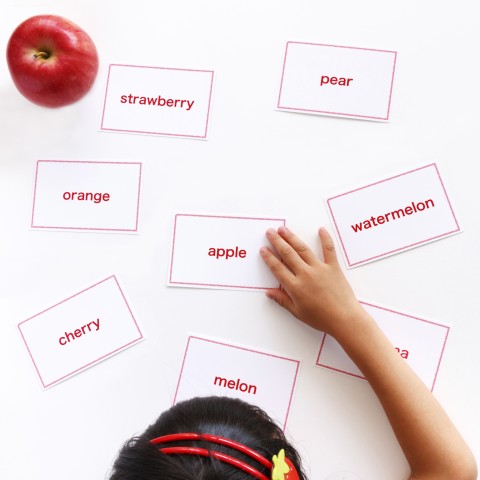
- ➢ See BulgarianPod101’s list of the 50 Most Common Bulgarian Verbs and their pronunciation!
What is the Easiest Part of Learning Bulgarian?
It’s reasonable to start learning the easiest part of Bulgarian first: cognate words, or the ones that sound and look similar in English and Bulgarian. If you’ve learned the Bulgarian alphabet, you’ll see how easy it is to learn Bulgarian words that have a common origin with those in English.
Here are some examples of cognate words:
| Bulgarian word + pronunciation | English meaning |
| студент (student) | “student” |
| идeя (eedeya) | “idea” |
| банан (banan) | “banana” |
| клас (klas) | “class” |
| център (tsentar) | “center” |
| сестра́ (sestra) | “sister” |
| хумор (humor) | “humor” |
| проект (proyekt) | “project” |
| филм (film) | “film,” “movie” |
Again, we recommend that you make flashcards of these cognates. We’ll be going over them again in section five.
- ➢ Want to make even more flashcards? See our list of the 100 Core Bulgarian Words.
3. I Want to Learn Bulgarian. Where Should I Start?
We’ve already mentioned that the best starting point for learning Bulgarian is to memorize the alphabet, and then make flashcards of cognate words. Here, we’ll give you some simple tips that will motivate you and help you achieve your desired Bulgarian fluency!
Tip #1 – Make your own achievable schedule with pre-set goals.
Try to divide your learning into easy stages and set a specific period of time to study each new level. If you’re motivated enough to learn Bulgarian, you should set aside at least fifteen minutes a day to study. This is a good amount of time that will allow you to really learn something without interfering with your schedule. Regular learning is essential for your progress, so don’t be lazy by skipping a day or two!
Imagine your language learning as a wall that you have to build by adding bricks daily. Each day of study equals one more brick. But if you stop studying the language for a long period of time, it’s quite probable that some of your bricks will fall out and bring down the rest of the wall.

Tip #2 – Make your learning fun!
There are a few ways to achieve this. For example, you can make your own flashcards and play a game with them, watch intriguing TV series in Bulgarian, learn about dates in Bulgarian, listen to popular Bulgarian songs, and the list goes on.
If there’s a topic you’re interested in, you can start by learning related Bulgarian vocabulary, doing research, and studying materials from Bulgarian sources.
Tip #3 – Find a Bulgarian friend!
One of the best ways to practice Bulgarian is to speak with a real Bulgarian. Find a Bulgarian friend to help you improve your conversational skills and achieve fluency faster. By speaking with him or her, you’ll remove your language barrier faster and increase your confidence, which is a surefire way to success.
Tip #4 – Review what you have learned so far!
It’s essential to review new vocabulary at least once a week until you get used to it. Your brain needs time to build solid roads in the new language, so you have to go through these new words often until they go from being tiny paths to being wide highways.
Tip #5 – Don’t give up!
There will be moments when learning Bulgarian won’t be as easy and fun as you wish. You just need to overcome these challenges instead of giving up. Don’t be afraid of making mistakes, as mistakes will help you get better.
Here’s a motivational thought from Theodore Roosevelt: “Believe you can and you’re halfway there.” In Bulgarian, this is:
- Ако вярвате, че можете, вече сте изминали половината път.
(Ako vyarvate, che mozhete, veche ste izminali polovinata pat.)

4. Five Tips for New Bulgarian Learners
Want to learn Bulgarian easy and fast? BulgarianPod101 has some tips for new learners! Follow our advice, and you’ll learn to speak Bulgarian in no time.
Tip #1 – Do all five!
The five elements of language-learning are: watching, reading, listening, writing, and speaking. To improve your Bulgarian language skills, you need to advance in all of these elements. How can you do this?
- Watching: Watch Bulgarian TV shows, Bulgarian movies, or Bulgarian news channels on a daily basis.
- Reading: Read Bulgarian books in your favorite genre, articles, news, letters, etc.
- Listening: You can listen to Bulgarian radio or even popular Bulgarian songs.
- Writing: Write as many new words as possible, and try forming sentences with them.
- Speaking: Don’t be afraid of speaking Bulgarian with your Bulgarian friend, in the shop, or wherever you go.
Tip #2 – Repeat, repeat, repeat…
In order to get used to the language’s rhythm, listen to new phrases and sentences over and over again until you start to recognize and understand the meaning. Try to imitate the native speaker as closely as possible.
Tip #3 – Perfect your pronunciation!
You can achieve some great results by using a voice-recording tool. It will allow you to listen to your pronunciation and compare it to that of a native speaker. This way, you can more easily recognize the sounds that you pronounce differently and fix them.
Tip #4 – Take a dictionary wherever you go!
This is a great way to learn new words while waiting in line, drinking your coffee, or even while you’re out walking. This is a natural way to learn during your free time.
Tip #5 – Master recorded dialogues!
Whenever you listen to recorded dialogues by native speakers, pay extra attention. Study the lines, learn them by heart, and begin understanding how to reply to someone in everyday conversations.
Another great way to learn Bulgarian is by using a Bulgarian app.
5. Why Don’t You Start Learning Bulgarian Right Away? (4 Practical Exercises)
You don’t have to wait any longer to start learning Bulgarian! Simply complete the following exercises, starting with the Bulgarian alphabet.
Exercise 1: Practice the Bulgarian Alphabet
Complete the table by filling in the English version of the following letters:
| Bulgarian Letters | English Letters |
| Аа | |
| Бб | |
| Дд | |
| Ее | |
| Зз | |
| Кк | |
| Мм | |
| Оо | |
| Тт |
That was easy, right? Now, let’s make things harder. Write the Bulgarian version of these English letters:
| Bulgarian Letters | English Letters |
| Gg | |
| Pp | |
| Ff | |
| Ll | |
| Uu (pronounced like “oo” in “tool”) | |
| Hh | |
| Ii (pronounced like “i” in “igloo”) | |
| Ss |
The hardest part is below. Write the English versions of the following Bulgarian letters. (Note that the first three look like specific English letters, but are different.)
| Bulgarian Letters | English Letters |
| Вв | |
| Нн | |
| Рр | |
| Жж | |
| Йй | |
| Цц | |
| Чч | |
| Шш | |
| Щщ | |
| Ъъ | |
| ь | |
| Юю | |
| Яя |
Exercise 2: Practice Reading
Now that you know the alphabet, it’s time to start reading. Read the following words out loud and check their pronunciation and meaning:
- кокошка (kokoshka) – “hen”
- октопод (oktopod) – “octopus”
- врата (vrata) – “door”
- къща (kаshta) – “house”
Now, let’s read some simple sentences:
- Той отвори вратата.
(Toy otvori vratata.)
“He opened the door.”
- Вратата на къщата е бяла.
(Vratata na kashtata e byala.)
“The house’s door is white.”
- Вратата на къщата се отвори.
(Vratata na kashtata se otvori.)
“The house’s door opened.”
- Кокошката влезе през вратата.
(Kokoshkata vleze prez vratata.)
“The hen came in through the door.”
Exercise 3: Practice Flashcards
If you’ve been following our guidelines, you should have about forty flashcards so far with nouns and verbs. If you haven’t made them yet, it’s time to write and review them now, before completing this exercise.
Find the following flashcards: студент, пиша, проект. Place them in a row in this order. Now, let’s write down a grammatically correct sentence.
- Студентът пише проект.
(Studentat pishe proekt.)
“The student writes a project.”
Now, find these flashcards: човек, филм. Let’s write down a grammatically correct sentence.
- Човекът гледа филм.
(Chovekat gleda film.)
“The man is watching a movie.”
Now, find these flashcards: мама, записвам, идея. Let’s write down a grammatically correct sentence.
- Мама записва идея.
(Mama zapisva ideya.)
“Mom writes down an idea.”
Another great game with flashcards is to match each word with its English meaning.
Exercise 4: Introducing Yourself in Bulgarian
Let’s start with some simple sentences that you can use to introduce yourself:
- Здравейте! Аз съм (your name).
(Zdraveyte! Az sam)
“Hello! I am (your name).”
- А ти как се казваш?
(A ti kak se kazvash?)
“And what is your name?”
- Приятно ми е да се запознаем.
(Priyatno mi e da se zapoznaem.)
“Nice to meet you.”
- Откъде си?
(Otkade si?)
“Where are you from?”
- Аз съм от (your country here).
(Az sam ot)
“I’m from (your country here).”
BulgarianPod101 has a list of the Bulgarian pronunciations of some countries. Check it out and fill in the blank with your country.
In this ten-minute video, you can learn some other useful expressions that will help you introduce yourself in Bulgarian:
6. Why is BulgarianPod101 Great for Learning Bulgarian?
BulgarianPod101 is an inexhaustible source of materials, guides, and practical exercises that will help you learn and master the Bulgarian language. Our team of native Bulgarian professionals has prepared this and many other reviews and guides, many of which you can download or view for free. But in order to gain full access to all of our website’s features, sign up today and have seven days of complete access for free.
BulgarianPod101 even offers a free app that’s available for Android, iPhone, iPad, and Kindle Fire. In case this isn’t enough and you feel that you need professional guidance, you can choose your Bulgarian teacher from MyTeacher and he/she will help you learn Bulgarian in a way that works for you!
Did you find this article helpful? Have we motivated you to start learning Bulgarian? We look forward to hearing from you and will help out the best we can!

An Overview of the 10 Most Common Mistakes in Bulgarian

There’s a Bulgarian saying that states:
- Глупавият се учи от собствените си грешки, а умният – от грешките на другите!
Glupaviyat se uchi ot sobstvenite si greshki, a umniyat – ot greshkite na drugite!
“The fool learns from his own mistakes, and the smart person learns from the mistakes of others!”
So why not become one of those smart people yourself? You can learn from the Bulgarian mistakes other learners have made, instead of repeating them and getting into some awkward situations.
BulgarianPod101 has prepared this detailed overview of the most common mistakes in the Bulgarian language, providing you with detailed explanations of rules, plenty of examples, and tips for avoiding these Bulgarian mistakes in your conversations with native speakers. This article will help you gain more confidence in your communication with Bulgarians!
 Table of Contents
Table of Contents
- Pronunciation Mistakes
- Vocabulary Word Mistakes
- Word Order Mistakes
- Grammar Mistakes
- Short and Long Definite Article
- Common Verb Tense Mistakes
- Semantic Mistakes
- Mistakes Involving Typical Bulgarian Expressions
- Embarrassing Mistakes
- Other Mistakes
- How BulgarianPod101 Can Help You
1. Pronunciation Mistakes
Here are some common pronunciation mistakes for Bulgarian-learners that you can start avoiding right now. Just study the following pronunciation rules:
Rule #1: The Bulgarian letter “P”
The Bulgarian letter “P” is always pronounced as a trilled English “R,” and never pronounced like the “R” in words like “far” or “father.”
Bulgarians teach their children to pronounce this letter properly from an early age using this popular tongue-twister:
- Рачо реже риба.
Racho rezhe riba.
“The crab is cutting the fish.”
Rule #2: Voiced and voiceless consonants in Bulgarian
In Bulgarian, each voiced consonant has a voiceless counterpart. There’s only one voiceless consonant that doesn’t have a voiced counterpart, which is the letter “Х.” Take a look at these voiced-voiceless pairs:
| Voiced Consonants | VoicelessConsonants |
| Б | П |
| Д | Т |
| Г | К |
| В | Ф |
| Ж | Ш |
| З | С |
| ДЗ | Ц |
| ДЖ | Ч |
| Х |
It’s important to know them, because the voiced consonants are pronounced as voiceless when located at the end of a word. For example:
- In the word нож (nosh), meaning “knife,” Ж is pronounced as Ш, as it becomes voiceless at the end of the word.
- In the word град (grat), meaning “city,” Д is pronounced as Т, as it becomes voiceless at the end of the word.
- In the word ръкав (rakaf), meaning “sleeve,” В is pronounced as Ф, as it becomes voiceless at the end of the word.
The so-called devoicing of the consonants in Bulgarian also occurs when there are two or three consonants bunched together and the final consonant is voiceless. This voiceless consonant makes all the others in the group sound voiceless, too. For example:
- In the word дръжка (drashka), meaning “handle,” Ж is pronounced as Ш. This is because, in the pair ЖК, the final consonant is voiceless and assimilates the voiced consonant.
- In the word градски (gratski), meaning “urban,” Д is pronounced as Т. This is because, in the cluster ДСК, the final consonant is voiceless and assimilates the voiced consonant Д.
Rule #3: Pronunciation of “A” at the end of a word
Another common Bulgarian error happens when foreigners try to pronounce the “A” sound at the end of a word. Remember that when a Bulgarian word ends in “A,” it’s pronounced like “Ъ,” unless it is a stressed syllable. For example:
- In the word баба (baba), meaning “grandmother,” A is not pronounced like in the English word “father,” but more like the u in “ugly,” making the Bulgarian vowel Ъ.
- In the word кокошка (kokoshka), meaning “hen,” A should be pronounced like the Bulgarian vowel Ъ.
But:
- In the word баща (bashta), meaning “father,” A is pronounced like it is in the English word “father,” because the last A is stressed. However, the first A in this word is not stressed, and it will sound like Ъ.
- In the word кола (kola), meaning “car,” A is pronounced like it is in the English word “father,” because the last A is stressed.
By mastering these Bulgarian pronunciation rules, you’ll really impress your Bulgarian interlocutor, as these are the niceties of the language that most Bulgarian-learners don’t know.
- → BulgarianPod101 offers you our Ultimate Bulgarian Pronunciation Guide, which can greatly help you improve your Bulgarian pronunciation and avoid some common Bulgarian pronunciation mistakes.
2. Vocabulary Word Mistakes
Paronyms in the Bulgarian language
There are many words in Bulgarian that are pronounced similarly to each other, but have different meanings. These words are called paronyms, and Bulgarian-learners must learn how to distinguish between them to avoid embarrassing situations. Here are a few examples of them:
- жена (zhena) – “woman” vs. женя (zhenya) – “getting married”
- коза (koza) – “goat” vs. коса (kosa) – “hair”
- пица (pitsa) – “pizza” vs. птица (ptitsa) – “bird”
- пипам (pipam) – “touch” vs. питам (pitam) – “ask”
You might be able to imagine the confusion that might occur if you made the following compliment to a girl:
- Каква красива коза имаш!
Kakva krasiva koza imash!
“What a beautiful goat you have!”
Instead of:
- Каква красива коса имаш!
Kakva krasiva kosa imash!
“What beautiful hair you have!”

Homonyms in the Bulgarian language
Another group of tricky words in Bulgarian are the homonyms, which are written and pronounced the same way, but have different meanings. Here are some examples for you:
- син (sin) – “blue” vs. син (sin) – “son”
- бал (bal) – “grades” vs. бал (bal) – “ball”
- вила (vila) – “country house” vs. вила (vila) – “pitch-fork”
Usually, it’s easier to distinguish between these words in the context of a conversation. For example, if you meet someone who tells you:
- Аз имам син и дъщеря.
Az imam sin i dashterya.
“I have a son and a daughter.”
It’s obvious that he isn’t talking about the color blue.
Further, if син (sin) is used as an adjective, it’s clear that it means “blue” and not a son. Here’s an example:
- Моят панталон е син.
Moyat pantalon e sin.
“My pants are blue.”
3. Word Order Mistakes
Although Bulgarian word order is pretty flexible, there are some specific rules that should be followed when building Bulgarian sentences. Knowing these rules well will help you avoid some common mistakes in learning Bulgarian and enhance your communication with natives. These rules mainly have to do with the short form of the personal pronoun. Here are four rules with examples:
Rule #1: Never place the short form of the personal pronoun at the very beginning of the sentence.
Wrong: Му е лошо.
Mu e losho.
Correct: Лошо му е.
Losho mu e.
“He feels bad.”
Rule #2: When a sentence starts with a word other than a verb, the short form of the personal pronoun comes before the verb.
Wrong: Какво боли те?
Kakvo boli te?
Correct: Какво те боли?
Какво те боли?
“Where do you feel the pain?”
Rule #3: When a sentence starts with a verb, the short form of the personal pronoun comes right after the verb.
Wrong: Мe боли главата.
Me boli glavata.
Correct: Боли ме главата.
Boli me glavata.
“I have a headache.”

Rule #4: When a sentence is in the future tense, the short form of the personal pronoun comes right after “ще.”
Wrong: Ще попитам го.
Shte popitam go.
Correct: Ще го попитам.
Shte go popitam.
“I will ask him.”
4. Grammar Mistakes
There are a couple of things that Bulgarian-learners can keep in mind to easier understand and start applying grammar rules. Let’s examine them together to avoid the most common Bulgarian grammar mistakes.
English and Bulgarian cognates – nouns
Fortunately, Bulgarian and English have many cognates. These are words that sound similar in both languages because of their common etymological origin. Foreigners usually get used to these words faster than others. Such cognates include: fantasy, melody, concert, instrument, opera, theater, dramatic, and dynamic.
It’s easier to remember their Bulgarian form knowing that -Y in English turns into – ИЯ (ya) in Bulgarian.
- “melody” – мелодия (melodiya)
- “comedy” – комедия (komediya)
- “history” – история (istoriya)
TRY IT YOURSELF
* Knowing this rule, try to make the Bulgarian forms of the following English words yourself:
- fantasy
- agony
(The answers can be found at the end of this article.)
English and Bulgarian cognates – adjectives
Another rule to remember about cognates is related to adjectives. When the English adjective ends in – IC, its Bulgarian form most likely ends in -ЧЕН.
“academic“ – академичен (akademichen)
“dynamic” – динамичен (dinamichen)
“dramatic“ – драматичен (dramatichen)
TRY IT YOURSELF
* Knowing this rule, try to make the Bulgarian forms of the following English adjectives yourself:
- fantastic
- systematic
- tragic
(The answers can be found at the end of this article.)
Bulgarian verb conjugation
To avoid many mistakes in Bulgarian grammar, learn Bulgarian verb conjugations and learn them well. Foreigners usually make these grammar mistakes because they aren’t familiar with Bulgarian verb conjugation. For example, they say:
Wrong: Ние са от Америка.
Nie sa ot Amerika.
Instead of:
Correct: Ние сме от Америка.
Nie sme ot Amerika.
“We are from America.”
Or:
Wrong: Аз уморен.
Az umoren.
Instead of:
Correct: Аз съм уморен.
Az sam umoren.
“I am tired.”
- → BulgarianPod101 provides you with some great ways to improve your Bulgarian grammar. For example, we have tons of useful videos like this one:
5. Short and Long Definite Articles
There is a definite article in Bulgarian that’s added to the end of a noun instead of before it. However, the masculine gender has two forms of definite articles: long (-ът, -ят) and short (-а, -я). The long form is used for a noun that’s the subject of a sentence, while the short form is used for nouns that are direct/indirect objects.
Foreigners often say:
Wrong: Жена седи на балкон.
Zhena sedi na balkon.
Following the English:
“A woman is sitting on a balcony.”
However, since жена in the sentence above is the subject of the sentence, the word should be given a long definite article, which is -та for feminine nouns. Since балкон is not a subject, but rather an indirect object, it should be given a short definite article.
Correct: Жената седи на балкона.
Zhenata sedi na balkona.
“The woman sits on the balcony.”
Here’s another example:
Wrong: Кораб отплава в 8 часа.
Korab otplava v 8 chasa.
Correct: Корабът отплава в 8 часа.
Korabat otplava v 8 chasa.
“The ship departed at 8:00 a.m.”
Кораб is the subject of the sentence, which is why it has to be used with a long definite article (-ът for masculine nouns).

- → BulgarianPod101 reminds you to never be afraid of making mistakes, as it’s through mistakes that you’ll learn and progress. The more you practice, the better—even if it seems very difficult in the beginning.
6. Common Verb Tense Mistakes
A common mistake in Bulgarian involves using the incorrect verb tense, because foreigners often have trouble distinguishing between the past tenses. Take the past aorist tense, for example. Using an imperfective verb in a sentence indicates that an action has been made, but is not yet finished.
- Вчера писах едно писмо.
Vchera pisah edno pismo.
“I wrote a letter yesterday.”
However, if you use a perfective verb instead of imperfective, it implies that the action has been completed.
- Вчера написах едно писмо.
Vchera napisah edno pismo.
“I wrote a letter yesterday.”
This means that you wrote the entire letter yesterday.
A common verb tense error of Bulgarian-learners is to use present perfect in a sentence that actually requires the past aorist tense. For example:
Wrong: Вчера съм ходил на лекар.
Vchera sam hodil na lekar.
Correct: Вчера ходих на лекар.
Vchera hodih na lekar.
“I went to a doctor yesterday.”
The present perfect does not specify the exact time when the action took place in the past. Because the word вчера (vchera), meaning “yesterday,” implies that the action happened at a specific time, only the past aorist tense should be used.
TRY IT YOURSELF
* Knowing this rule, try to write the correct form of the following sentence, which is wrong:
Wrong: Миналата седмица съм бил на море.
Minalata sedmitsa sam bil na more.
“I was at sea last week.”
Correct:
(The answer can be found at the end of this article.)
7. Semantic Mistakes
There are some Bulgarian words that share a common origin with a similar-sounding English word, but have a different meaning. For example, the Bulgarian word магазин (magazin) means “shop” rather than “magazine.”
So, it would be a mistake to say:
Wrong: Днес ще чета магазина.
Dnes shte cheta magazina.
“Today, I’m going to read the store.”
Correct: Днес ще ходя до магазина за хляб.
Dnes shte hodya do magazina za hlyab.
“Today, I’m going to the store for bread.”
Or:
Correct: Днес ще чета списание.
Dnes shte cheta spisanie.
“Today, I’m going to read a magazine.”
Another example is the Bulgarian word сок (sok), which in English doesn’t mean “sock,” but “juice.”
Correct: Искам да пия сок от портокал.
Iskam da piya sok ot portokal.
“I want to drink orange juice.”
The commonly used English word “shop” in Bulgarian refers to a member of an ethnic group: шоп. So, pay attention when you use these words in Bulgarian.

8. Mistakes Involving Typical Bulgarian Expressions
Often, foreigners struggle to understand some of the typical Bulgarian expressions that are quite common in daily life.
When someone tells you that you’ve “waded the onions,” which sounds like сгази лука (sgazi luka), this means that you have gotten yourself into trouble.
When someone wants to tell you that something will never happen, it will sound like когато ми цъфнат налъмите (kogato mi tsafnat nalamite), which is literally translated as “when my clogs blossom.” They may also opt to use: на кукуво лято (na kukuvo lyato), which is literally translated as “on a cuckoo’s summer.”
When someone “sends you to find green caviar,” or пращам те за зелен хайвер (prashtam te za zelen hayver), this means that he tries to trick you.
One more funny expression in Bulgarian culture is to say that someone is “naked water,” which in Bulgarian sounds like гола вода (gola voda). This means that the person is bad at something.

9. Embarrassing Mistakes
When talking to Bulgarians, there’s another kind of mistake you need to avoid. This is a mistake that doesn’t necessarily involve semantics, grammar, or vocabulary, but may be considered offensive to native Bulgarians.
For example, asking a Bulgarian when the language will adopt the Latin script instead of using the Russian alphabet could certainly be taken the wrong way. Bulgarians are very proud of their Cyrillic alphabet—which is not Russian, but was introduced to the First Bulgarian empire in the ninth century AD. Bulgarians celebrate the creation of their alphabet on a national holiday each year on May 24.
Another embarrassing situation would be to mistake someone’s name. Be careful when you pronounce a person’s name, as this is the name by which the person identifies himself. Carefully listen to the proper pronunciation of your interlocutor’s name, and if needed, ask him to repeat it for you instead of saying it incorrectly.
There are many names in Bulgarian that have a specific meaning, so be sure to pronounce the name correctly!
- Аз съм Мирослава.
Az sam Miroslava.
“I am Miroslava.”
In Bulgarian, this name is composed of two words: мир (mir), which currently means “peacе,” but in ancient Bulgarian meant “world”; and слава (slava), which means “fame.” So the name Мирослава means “the world’s fame.”
If you get the name wrong, it might change its meaning. For example:
- Здравей, Морислава.
Zdravey, Morislava.
“Hello, Morislava.”
In Bulgarian, the word мори means “to exterminate,” so the meaning of this beautiful Bulgarian name might turn into “exterminate the fame,” which could be quite embarrassing for both parties.

10. Other Mistakes
BulgarianPod101 has gathered for you a wide variety of Bulgarian mistakes, but here we’re going to review one more mistake, related to the politeness level. English-speakers find it difficult to distinguish between the different forms in Bulgarian. Here’s an overview:
When you speak to a family member, close friend, or a person younger than you, you can use the informal form “ти” along with a verb in the singular form:
Informal: Ти работиш ли?
Ti rabotish li?
“Do you work?”
When you speak to an elder person, a stranger, or your boss, you need to use the formal form “Вие” along with a verb in the plural form:
Formal: Вие работите ли?
Vie rabotite li?
“Do you work?”
TRY IT YOURSELF
* Knowing this rule, try to turn this formal question into an informal one:
Formal: Как се казвате?
Kak se kazvate?
“What is your name?”
Informal:
(The answer can be found at the end of this article.)
11. How BulgarianPod101 Can Help You
BulgarianPod101 prepared this detailed overview of the ten most common mistakes in Bulgarian to help you overcome your language barriers, and to encourage you to start conversations with Bulgarians. The most important thing to remember is to never give up because of the mistakes you make. The more you practice, the better you will become. Be aware that every beginning is difficult.
If you don’t feel confident in your ability to avoid all of these common Bulgarian mistakes by yourself, you can find personal guidance from our MyTeacher service. Your Bulgarian language teacher will guide you step-by-step through the speaking process and will help you build your confidence.
Hopefully, you’ve enjoyed this detailed article. We would appreciate your feedback about it! Please, let us know in the comments whether you found the exercises easy or difficult, and we’ll help you out the best we can.
And now, it’s time to check your answers!
Answers to Section 4
“fantasy” – фантазия (fantaziya)
“agony” – агония (agoniya)
“fantastic” – фантастичен (fantastichen)
“systematic” – систематичен (sistematichen)
“tragic” – трагичен (tragichen)
Answers to Section 6
Wrong: Миналата седмица съм бил на море.
Minalata sedmitsa sam bil na more.
“I was at sea last week.”
Correct: Миналата седмица бях на море.
Minalata sedmitsa biah na more.
Answers to Section 10
Formal: Как се казвате?
Kak se kazvate?
“What is your name?”
Informal: Как се казваш?
Kak se kazvash?
“What is your name?”

An Overview of the Top 10 Bulgarian Questions and Answers

Bulgarian people are helpful and friendly. Foreigners who visit or live in Bulgaria will find that the local people are more than willing to enter into contact with them and offer their assistance. As long as you know the basic Bulgarian phrases and questions, you’ll be able to start conversations and make friends.
This comprehensive review will acquaint you with the most common conversation starters in the form of easy questions and answers in Bulgarian. Knowing these will make your communication with native speakers much smoother, and being able to ask basic questions in Bulgarian will also help you learn specific information about your interlocutor or surroundings.
This will give you a great advantage over other foreigners who live in Bulgaria, as you’ll gain many more opportunities to communicate with natives and fit in with the local culture.
BulgarianPod101 is your guide in this learning journey, and we recommend that you study this detailed review before you travel to Bulgaria!
 Table of Contents
Table of Contents
- Introduction to the Top 10 Bulgarian Questions and Answers
- What’s your name?
- Where are you from?
- Where do you live?
- How long have you been studying Bulgarian?
- Have you been to Bulgaria before?
- What do you do?
- Do you like Bulgarian food?
- How are you?
- What’s wrong?
- How much is it?
- Make Conversation with What You’ve Learned
- How BulgarianPod101 Can Help You
1. Introduction to the Top 10 Bulgarian Questions and Answers
Before you learn how to build questions in Bulgarian, you need to know the Bulgarian question words. These are words that usually come at the beginning of the question, and are used to form a variety of questions. In the following table is a Bulgarian question words list, and each word is accompanied by a sample question that uses it:
| What
Example: What are you doing? |
Какво…?
(Kakvo) Какво правиш? (Kakvo pravish?) |
| How
Example: How are you? |
Как…?
(Kak) Как си? (Kak si?) |
| Who
Example: Who are you? |
Кой…?
(Koy) Кой си ти? (Koy si ti?) |
| Where
Example: Where are you from? |
Къде…?
(Kade) От къде си? (Ot kаde si?) |
| When
Example: When did you arrive? |
Кога…?
(Koga) Кога пристигна? (Koga pristigna?) |
| Why
Example: Whу are you in Bulgaria? |
Защо…?
(Zashto) Защо си в България? (Zashto si v Bаlgariya?) |
This guide will also acquaint you with some of the most popular traditional Bulgarian meals, and teach you many Bulgarian words and phrases you’ll need to introduce and describe yourself.
- → If you can’t wait, you can start right away with our list of twenty common Bulgarian words for occupations. Find out how to say your occupation in Bulgarian and study this guide so you can talk about it in conversations.
Now we think you’re ready to learn the most common Bulgarian questions and answers!
2. What’s your name?

This is usually the first question you’ll get when meeting new people. So let’s learn how to ask it in Bulgarian, and how to give a proper answer.
- Как се казваш?
Kak se kazvash?
“What’s your name?”
In case you would like to ask this question in a formal style, or ask several people at once, you can say:
- Как се казвате?
Kak se kazvate?
Here’s how to respond to it:
- Казвам се Джон.
Kazvam se Dzhon.
“My name is John.”
- Казвам се Кейт.
Kazvam se Keit.
“My name is Kate.”
3. Where are you from?
Bulgarians easily notice if the person they’re speaking with is a foreigner, usually due to the person’s accent or appearance. So the next question you’ll probably get is:
- От къде си?
Ot kade si?
“Where are you from?”
The formal or plural style will sound like this:
- От къде сте?
Ot kade ste?
“Where are you from?”
And here’s how to answer:
- Аз съм от Испания.
Az sаm ot Ispaniya.
“I am from Spain.”
- Ние сме от Англия.
Nie sme ot Angliya.
“We are from England.”
- ➢ BulgarianPod101 has a vocabulary list for countries! Check it out to hear how the names of different countries sound in Bulgarian.

4. Where do you live?
Many people will be curious to learn where you live now, so the next question in Bulgarian you should expect is:
- Къде живееш?
Kade zhiveesh?
“Where do you live?”
If you’re just in Bulgaria for a short vacation, you can answer:
- Живея в Лондон.
Zhiveya v London.
“I live in London.”
Or:
- Живея в Сао Пауло.
Zhiveya v Sao Paulo.
“I live in Sao Paulo.”
But maybe you’ve already made the move to live in Bulgaria. In that case, your answer could be:
- Живея в София.
Zhiveya v Sofia.
“I live in Sofia.”
- ➢ Learn some of the major Bulgarian cities here, so you can reply to this question more easily.
5. How long have you been studying Bulgarian?

Your new Bulgarian friend might be amazed with your level of language proficiency, so he or she might ask you:
- Колко време си учил български?
Kolko vreme si uchil balgarski?
“How long have you been studying Bulgarian?”
Or:
- От колко време учиш български?
Ot kolko vreme uchish balgarski?
“How long have you been studying Bulgarian?”
You can answer by simply stating the amount of time, or by giving a complete sentence:
- Един месец.
Edin mesets.
“One month.”
- Уча български от един месец.
Ucha balgarski ot edin mesets.
“I have been studying Bulgarian for one month.”
Or:
- Половин година.
Polovin godina.
“Half a year.”
- Уча български от половин година.
Ucha balgarski ot polovin godina.
“I have been studying Bulgarian for half a year.”
Do you want to give a more specific answer? Try something like this:
- Уча български от месец май тази година.
Ucha bаlgarski ot mesets may tazi godina.
“I have been studying Bulgarian since May this year.”
BulgarianPod101 has a lesson all about the names of months in Bulgarian. Check it out!
6. Have you been to Bulgaria before?
Your interlocutor might be curious to find out whether you’ve been to Bulgaria before, or if this is your first time. So he or she might ask:
- Бил ли си в България преди?
Bil li si v Balgariya predi?
“Have you been to Bulgaria before?”
Or:
- За първи път ли си в България?
Za parvi pat li si v Balgariya?
“Are you in Bulgaria for the first time?”
Here are some possible answers:
- Аз съм за първи път в България.
Az sam za parvi pat v Balgariya.
“I am in Bulgaria for the first time.”
- Преди две години също бях в България.
Predi dve godini sŭshto byah v Bŭlgariya.
“Two years ago, I was also in Bulgaria.”
- Бил съм в България и преди.
Bil sam v Balgariya i predi.
“I’ve been to Bulgaria before.”
7. What do you do?
If you’re living in Bulgaria, or visiting for an extended period of time, your interlocutor might want to know why. Bulgarians won’t ask this directly, though, as it might be considered offensive to ask “Why are you here?” or Защо си тук? (Zashto si tuk?). Instead, they may ask about your occupation:
- Какво работиш?
Kakvo rabotish?
“What do you do?”

Another way to ask this Bulgarian question is:
- С какво се занимаваш?
S kakvo se zanimavash?
“What do you do?”
You can answer with both your occupation and your reason for being in Bulgaria.
- Аз съм писател и дойдох да пиша книга за България.
Az sam pisatel i doydoh da pisha kniga za Balgariya.
“I am a writer and I came to write a book about Bulgaria.”
- Аз съм бизнесмен и искам да отворя бизнес в България.
Az sam biznesmen i iskam da otvorya biznes v Balgariya.
“I am a businessman and I want to open a business in Bulgaria.”
- Аз съм пенсионер и не работя.
Az sam pensioner i ne rabotya.
“I’m a retiree and I don’t work.”
You can learn more words for jobs and occupations in Bulgarian here, and listen to their proper Bulgarian pronunciation.
8. Do you like Bulgarian food?
As you develop closer relationships with your Bulgarian friends, they might invite you to their home for dinner. Of course, you wouldn’t want to miss that chance! But first, they might ask you the following question:
- Харесваш ли българска храна?
Haresvash li balgarska hrana?
“Do you like Bulgarian food?”
This is your opportunity to tell them what you like the most, and hopefully, they’ll prepare your favorite Bulgarian meal for you. So you can answer this way:
- Да, особено харесвам баница.
Da, osobeno haresvam banitsa.
“Yes, I particularly like banitsa.”
- Да, особено харесвам пататник.
Da, osobeno haresvam patatnik.
“Yes, I particularly like patatnik.”

- ➢ BulgarianPod101 has a list of some of the most popular Bulgarian dishes, so do be sure to study up. 😉
9. How are you?
Once you’ve gotten close with someone, this is probably the first question they’ll ask whenever you meet up:
- Как си?
Kak si?
“How are you?”
There are different ways to answer this question in Bulgarian. Let’s see some of them:
- Добре съм, благодаря!
Dobre sam, blagodarya!
“I’m fine, thanks!”
- Отлично, благодаря!
Otlichno, blagodarya!
“Perfect, thanks!”
- Не се чувствам добре.
Ne se chuvstvam dobre.
“I’m not feeling well.”
- Уморен съм и ми се спи.
Umoren sam i mi se spi.
“I’m tired and sleepy.”
If you would like to learn some more answers to this question, we have you covered!
10. What’s wrong?
If you’re speaking with a friend who tells you that he or she doesn’t feel good, then you should ask:
- Какво има?
Kakvo ima?
“What’s wrong?”
Or:
- Какво не е наред?
Kakvo ne e nared?
“What’s wrong?”
Then, you might receive one of the following answers:
- Болен съм.
Bolen sam.
“I’m sick.”
- Разтревожен съм.
Raztrevozhen sam.
“I’m worried.”
- Гладен съм.
Gladen sam.
“I’m hungry.”

11. How much is it?
Now, let’s see what you need to ask when you’re in the market. Even if you don’t know the name of every product in Bulgarian, knowing how to ask for the price is always going to be helpful.
- Колко струва това?
Kolko struva tova?
“How much is it?”
Or:
- Каква е цената на това?
Kakva e tsenata na tova?
“What is the price of this?”
And to understand the answer, you’ll have to learn the Bulgarian numbers first. The answer could be something like:
- Два лева.
Dva leva.
“Two leva.”
- Един и петдесет.
Edin i petdeset.
“One fifty.”
- Пет лева за килограм.
Pet leva za kilogram.
“Five leva per kilogram.”
12. Make Conversation with What You’ve Learned
Here’s a quick exercise to test your knowledge. Imagine that you meet a Bulgarian man for the first time and need to introduce yourself. Try filling in the blanks with your responses, and scroll to the end to check your answers!
* * * * * * * * * * * * * * * * * * * * * * * * * * * * * * * * * * * * * * * * * * * * * * * * * * * * * * * *
- – Здравей, как се казваш?
– ____________________
(Your answer here. Reply and ask about his name as well.)
- – Аз съм Петър. От къде си?
– ____________________
(Your answer here)
- – А къде живееш?
– ___________________
(To answer this question, read Peter’s next words.)
- – В Пловдив!? И аз живея в Пловдив, но съм от Варна. А какво работиш.
– ___________________
(Your answer here. Ask Peter about his occupation, too.)
- – Аз съм брокер. Работя за една пловдивска фирма за недвижими имоти. Търсиш ли да закупиш имот в България?
– ___________________
(Your answer here. Politely decline his offer.)
* * * * * * * * * * * * * * * * * * * * * * * * * * * * * * * * * * * * * * * * * * * * * * * * * * * * * * * *
If you don’t understand everything or are struggling to write your answers, don’t worry. You can check the answers at the end of the article.
13. How BulgarianPod101 Can Help You
BulgarianPod101 has prepared this detailed review of the top ten Bulgarian questions and answers to help you start your face-to-face communication with Bulgarian people. We believe that by studying this guide, you’ll become much more confident in making friends in Bulgaria. Since practice is the best possible teacher, try to start practicing what you’ve learned right away.
If you still need personal guidance, BulgarianPod101 can help you by offering you a private Bulgarian language teacher with our MyTeacher service. This language expert will uncover all the secrets of Bulgarian grammar and lead you to language-learning success.
Now, it’s time to check your answers. Please let us know in the comments whether the exercise was easy or difficult for you, and whether you were able to understand the Bulgarian sentences or not. Also let us know how you feel about this review. Did you find it helpful? We look forward to hearing from you and will help out the best we can!
Answers to Section 12 Exercise – Make a Conversation
- – Здравей, как се казваш?
Zdravey, kak se kazvash?
“Hello, what is your name?”
- – Здравей, аз съм Джон. А ти как се казваш? (Place your name in place of Джон.)
Zdravey, az sam Dzhon. A ti kak se kazvash?
“Hi, I’m John. And what is your name?”
(Your answer here. Reply and ask his name as well.)
- – Аз съм Петър. От къде си?
Az sam Petar. Ot kade si?
“I’m Peter. Where are you from?”
- – Аз съм от Англия. (Place your country in place of Англия.)
Az sam ot Angliya.
“I’m from England.”
(Your answer here)
- – А къде живееш?
A kade zhiveesh?
“And where do you live?”
- – Аз живея в Пловдив.
Az zhiveya v Plovdiv.
“I live in Plovdiv.”
(To answer this question, read Peter’s next words.)
- – В Пловдив!? И аз живея в Пловдив, но съм от Варна. А какво работиш?
V Plovdiv!? I az zhiveya v Plovdiv, no sam ot Varna. A kakvo rabotish?
“In Plovdiv!? I live in Plovdiv too, but I’m from Varna. And what do you do?”
- – Аз съм бизнесмен. А ти? (Place your occupation in place of бизнесмен.)
Az sam biznesmen. A ti?
“I’m a businessman. And you?”
(Your answer here. Ask Peter about his occupation, too.)
- – Аз съм брокер. Работя за една пловдивска фирма за недвижими имоти. Търсиш ли да закупиш имот в България?
Az sam broker. Rabotya za edna plovdivska firma za nedvizhimi imoti. Tarsish li da zakupish imot v Balgariya?
“I’m a broker. I work for a Plovdiv real estate company. Are you looking to buy a property in Bulgaria?”
- – Не, благодаря.
Ne, blagodarya.
“No, thanks.”
(Your answer here. Politely decline his offer.)

Bulgarian Proficiency Test Guide: Pass the Test with Success

Have you ever heard about STBFL or ECL? Did you know that you can check your Bulgarian language skills by taking a Bulgarian language level test and getting a certificate that corresponds to your language level?
There are many reasons why taking a foreign language exam is important. Here are just a few scenarios that indicate you should start planning to take one yourself:
- If you plan to move to Bulgaria
- If you want to build business relations with Bulgarians
- If you want to stand out from the crowd when applying for a job
- If you want to increase your motivation to learn more
In the process of preparing for your Bulgarian as a second language exam, you’ll not only improve your studies, but you’ll also learn language skills that will be advantageous for you in the future. Moreover, by expanding your language skills, you’ll be able to feel like part of a different community, country, and culture—and make many Bulgarian friends.
BulgarianPod101.com has prepared this detailed Bulgarian proficiency test guide to give you all of the tools and information you need to pass your Bulgarian exam!
 Table of Contents
Table of Contents
- General Information About Official Bulgarian Proficiency Tests
- The Standard Test of Bulgarian as a Foreign Language (STBFL)
- ECL – European Consortium for the Certificate of Attainment in Modern Languages
- Foreign Language Proficiency Exam (FLPE)
- Official ACTFL Oral Proficiency Interview (OPI)
- How BulgarianPod101 Can Help You Prepare For The Test?
- Conclusion
1. General Information About Official Bulgarian Proficiency Tests
Whether you have an upcoming Bulgarian language test or you plan to take one in the future when you’ve had time to improve your language skills, it’s beneficial to learn more about the specifications. There are four Bulgarian language exams available for foreigners:
- The Standard Test of Bulgarian as a Foreign Language (STBFL)
- European Consortium for the Certificate of Attainment in Modern Languages (ECL)
- Foreign Language Proficiency Exam (FLPE)
- Official ACTFL Oral Proficiency Interview (OPI)
BulgarianPod101.com has prepared this guide for you with detailed information about each of these exams, including:
- General information about each of these four Bulgarian language tests
- How many levels there are and what they mean
- How many sections there are and what they consist of
- The duration for each section (and for the entire exam)
- Where the exam can be taken
- What the fee is for taking each exam
- What kind of certification you’ll receive for each level
2. The Standard Test of Bulgarian as a Foreign Language (STBFL)
A- General Information About the Exam
The Standard Test of Bulgarian as a Foreign Language (STBFL) is conducted by the University of Sofia. In Bulgaria, it’s accepted as proof of Bulgarian language proficiency. This Bulgarian language exam consists of five levels of language competence: A2, B1, B2, C1, and C2. Each level is regulated based on the CEFR (Common European Framework of Reference for Languages) and ALTE (Association of Language Testers in Europe) levels.
1- Detailed Information About the A2 Level Exam
The A2 level of this Bulgarian proficiency test reveals basic competence and corresponds to the ALTE A2 Level based on CEFR.
Total Duration: 180 minutes, 4 parts for a total of 285 points. To pass, you need to get at least 144 points.
The A2 test consists of four sections:
- ★ The Listening Test
Duration: 40 minutes, 5 exercises for a total of 55 points. To pass, you need at least 28 points.
The candidate should understand the meaning of words and phrases, be able to take notes while listening to short texts and dialogues, and be able to find specific information in longer texts.
- ★ The Reading Test
Duration: 15 minutes, 2 exercises for a total of 35 points. To pass, you need at least 18 points.
The candidate should be able to read texts and answer related questions. The texts could be in the form of advertisements, letters, notes, or short stories.
- ★ The Writing Test
Duration: 105 minutes, 6 exercises for a total of 135 points. To pass, you need at least 68 points.
The candidate should be able to: write some simple notes or announcements; describe different events, places, people, and things; write personal letters to a friend. For this part of the exam, candidates can expect to:
- Fill in the blanks
- Answer writing questions
- Write offers and commands
- Make comparisons
- Write descriptions, essays, or dialogues
- ★ The Speaking Test
Duration: 20 minutes, 2 exercises for a total of 60 points. To pass, you need at least 30 points.
The candidate should be able to: take part in conversations; ask questions; understand what other people are saying. The first exercise is conducted in the form of an interview and consists of five to ten questions related to the personality of the candidate. The second exercise consists of a dialogue, in which the candidate has to describe something and reveal his/her own opinion about it.
- ► BulgarianPod101.com can help you be more confident for your Bulgarian A-level exam. Check out our page on the top 15 questions you should know for conversations.
2- Detailed Information About the B1 Level Exam
The B1 level of this Bulgarian language proficiency test reveals threshold competence and corresponds to the ALTE B1 Level based on CEFR.
Total Duration: 180 minutes, 4 parts for a total of 365 points. To pass, you need at least 184 points.
The B1 test consists of four sections:
- ★ The Listening Test
Duration: 40 minutes, 5 exercises for a total of 95 points. To pass, you need at least 48 points.
The candidate should be able to: understand longer and more-complicated dialogues; take notes while listening; answer spontaneously in dialogues related to different situations.
- ★ The Reading Test
Duration: 30 minutes, 3 exercises for a total of 55 points. To pass, you need at least 28 points.
The candidate should be able to: read short and long dialogues; paraphrase them; answer questions. Candidates will be reading original dialogues and articles
- ★ The Writing Test
Duration: 100 minutes, 6 exercises for a total of 155 points. To pass, you need at least 78 points.
In addition to being able to describe different things, the candidate should be able to write stories, dialogues, and two types of essays (analytical and descriptive).

- ★ The Speaking Test
Duration: 10 minutes, 2 exercises for a total of 60 points. To pass, you need at least 30 points.
The candidate should be able to talk about and discuss familiar topics and argue for/against a specific position. The first exercise is conducted in the form of an interview and consists of five to ten questions related to the personality of the candidate. The second exercise consists of one or two dialogues related to daily or professional topics, in which the candidate has to analyze events or situations, as well as describe and reveal his/her own opinion.
3- Detailed Information About the B2 Level Exam
The B2 level of the exam reveals good competence and corresponds to the ALTE B2 Level based on CEFR.
Total Duration: 260 minutes, 4 parts for a total of 300 points. To pass, you need at least 180 points.
The B2 test consists of four sections:
- ★ The Speaking Test
Duration: 20 minutes, 5 exercises for a total of 20 points. To pass, you need at least 8 points.
The first exercise is conducted in the form of an interview and consists of five to ten questions related to the personality of the candidate. The candidate should be able to: talk about and discuss different topics; argue; describe the pros and cons of different options; make comparisons; clearly express his/her thoughts in detail.
- ★ The Listening Test
Duration: 60 minutes, 4 exercises for a total of 85 points. To pass, you need at least 51 points.
The candidate should be able to: understand sentences and short dialogues; correctly answer questions about them; take notes.
- ★ The Reading Test
Duration: 90 minutes, 5 exercises for a total of 60 points. To pass, you need at least 36 points.
The candidate should be able to comprehend a text related to media, a profession, or everyday life. He should also: cope with longer text on familiar topics; be able to fill in the blanks; be able to answer questions with yes or no; be able to choose the right answers from multiple options.
- ★ The Writing Test
Duration: 90 minutes, 5 exercises for a total of 155 points. To pass, you need at least 93 points.
The writing exam checks the developed skills of listening, reading and writing, starting with Global and detail listening comprehension and assessment of spontaneous communication. The second part consists of writing an answer to a group of questions, writing a continuation of a story, writing descriptive or argumentative texts, as well as writing an essay on a preferred topic.
4- Detailed Information About the C1 Level Exam
The C1 level reveals high competence and corresponds to the ALTE C1 Level based on CEFR.
Total Duration: 180 minutes, 4 parts for a total of 300 points. To pass, you need at least 156 points.
The C1 test consists of four sections:
- ★ The Listening Test
Duration: 40 minutes, 3 exercises for a total of 55 points. To pass, you need at least 28 points.
The candidate should be able to: understand different types of sentences; choose the right answers corresponding to them; take notes.
- ★ The Reading Test
Duration: 40 minutes, 3 exercises for a total of 60 points. To pass, you need at least 30 points.
The candidate should be able to: comprehend texts related to different areas of expertise; discuss various topics; understand the core meaning of texts; extract the relevant information from the texts. He or she should be able to identify phrases in fiction as well as in texts rich in information.
- ★ The Writing Test
Duration: 85 minutes, 6 exercises for a total of 125 points. To pass, you need at least 63 points.
The candidate should be able to write well-structured texts using different forms of expression. The exercises consist of writing five short texts, a continuation of a story, and an essay.
- ★ The Speaking Test
Duration: 15 minutes, 2 exercises for a total of 60 points. To pass, you need at least 35 points.
The candidate should be able to talk freely about different topics and express his/her opinion clearly. The first exercise is conducted in the form of an interview related to the personality of the candidate. The second part consists of talking about professional and routine topics, as well as commenting on current events.
5- Detailed Information About the C2 Level Exam
The C2 level reveals perfect language knowledge and corresponds to the ALTE C2 Level based on CEFR.
Total Duration: 240 minutes, 4 parts for a total of 300 points. To pass, you need at least 180 points.
The C2 test consists of four sections:
- ★ The Listening Test
Duration: 40 minutes, 3 exercises for a total of 120 points. To pass, you need at least 72 points.
The candidate should be able to understand everything he/she hears and exchange information making use of facts and arguments.
- ★ The Reading Test
Duration: 90 minutes, 3 exercises for a total of 88 points. To pass, you need at least 53 points.
The candidate should be able to: comprehend texts related to different areas of expertise; discuss various topics, including those related to science; understand the core meaning of texts; extract the relevant information from the texts. He or she should be able to identify phrases in fiction as well as in texts rich in information.
- ★ The Writing Test
Duration: 90 minutes, 3 exercises for a total of 92 points. To pass, you need at least 55 points.
The candidate should be able to write well-structured texts using different forms of expression. The exercises consist of writing five short texts: a continuation of a story, essays, descriptions, notes from meetings and seminars, reports, personal and business letters, etc.
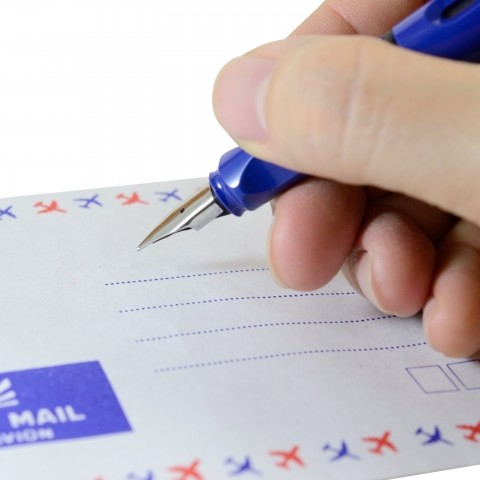
- ★ The Speaking Test
Duration: 20 minutes, 2 exercises for a total of 20 points. To pass, you need at least 8 points.
The candidate should possess language competence that’s close to that of native speakers. The first exercise is conducted in the form of an interview related to the personality of the candidate. The second part consists of talking about professional and routine topics, as well as commenting on current events. The candidate should know how to use some Bulgarian and foreign sayings, quotes, and popular thoughts.
- ► Passing the Bulgarian C2 test can be very challenging, especially the speaking test. To help you out, we’ve put a video below that can teach you 50 Bulgarian phrases to use in a conversation:
B- Where Can the Exam be Taken?
This exam can be taken at the Sofia University “St. Kliment Ohridski” in the Department for Language Teaching and International Students.
C- What is the Fee for Taking this Exam?
- The exam fee for US applicants is $100 + $15 postage fee for shipping the certificate. $115 in total.
- The exam fee for European candidates is EUR 85 + EUR 10 postage fee for shipping the certificate. EUR 95 in total.
- The exam fee for applicants from other countries is $115 or $95 (optional).

3. ECL – European Consortium for the Certificate of Attainment in Modern Languages
A- General Information About the Exam
The European Consortium for the Certificate of Attainment in Modern Languages is an international examination system for testing the listening, oral, reading, and writing skills of candidates for fifteen European languages:
- Bulgarian
- Croatian
- Czech
- English
- French
- German
- Hebrew
- Hungarian
- Italian
- Spanish
- Polish
- Romanian
- Russian
- Serbian
- Slovak
The test is subject to strict quality standards and reveals how well the candidate can cope with everyday, professional, and personal situations.
This test consists of four levels of language competence, adapted to the recommendations of the Common European Framework: A2 (Waystage), B1 (Threshold), B2 (Vantage), and C1 (Effective Operational Proficiency).
B- Detailed Information About the Examination Components
Unlike most language tests, the ECL does not include translation- or grammar-related tasks. Each of the four levels has the same test structure: four components tested by completing two tasks. Let’s take a look at them:
1- Oral Communication
This exam consists of two parts: a listening skill assessment and a speaking skill assessment. The candidates are assessed by two examiners. The maximum number of points a candidate can get is 25. The minimum number of points to pass is 10. Here are the parts of the oral exam:
- ❏ The first 3-5 minutes of the oral exam are for warming up and relaxing; candidates are not assessed during this time.
❏ The next part of the test is for starting a conversation between two candidates, while the role of the examiner is to guide their conversation with questions. Duration: 5-8 minutes.
❏ The third part of the test is for creating a monologue that reveals the candidate’s thoughts regarding a given topic or area of interest. Duration: 5-8 minutes.
2- Listening Comprehension Test
The candidate has to listen to an audio recording and demonstrate the ability to understand it by completing two different tasks. These can consist of multiple-choice questions, short answers, sentence completion, etc.
The maximum number of points a candidate can receive is 25. The minimum number of points required to pass is 10.
3- Writing Test
The candidate is allowed to use a dictionary for this task, which consists of writing two texts on a given topic and predetermined length. The examiners will evaluate the texts based on factors such as style, fluency, text structuring, and morphology. The maximum number of points a candidate can receive is 25. The minimum number of points required to pass is 10.

- The candidates for level A2 have 35 minutes to complete the task and have to write two texts of about 50 words each.
- The candidates for level B1 have 40 minutes to complete the task and have to write two texts of about 100 words each.
- The candidates for level B2 have 60 minutes to complete the task and have to write two texts of about 150 words each.
- The candidates for level C1 have 75 minutes to complete the task and have to write two texts of about 200 words each.
4- Reading Test
After reading the given text, the candidate should complete two tasks with ten items each so that the examiner can assess his or her reading comprehension. These tasks might be multiple-choice questions, matching, sentence completion, or short answer.
- The reading comprehension test for A2-level candidates consists of 400-600 words.
- The reading comprehension test for B1-level candidates consists of 500-700 words.
- The reading comprehension test for B2-level candidates consists of 800-1000 words.
- The reading comprehension test for C1-level candidates consists of 1000–1300 words.
The total time allocated for this part is 35 minutes for levels A2 and B1, and 45 minutes for levels B2 and C1. The number of words in the reading comprehension test varies between 400 and 1300 based on the level.
C- When and Where Can You Take the Bulgarian ETC Exam?
The Bulgarian ETC exam can be taken two times per year, in June and December. In Bulgaria, the exam center is located in Varna. The examination fee for this test varies by location.
4. Foreign Language Proficiency Exam (FLPE)
A- General Information About the Exam
The Foreign Language Proficiency Exam (FLPE) is intended only for students enrolled in the New York University’s Graduate School of Arts and Science. Through it, the students demonstrate foreign language skills required for their graduation.
B- Specific Information About the Test
FLPE consists of only one task: The candidate should translate one to three paragraphs of Bulgarian text into English. They can make use of a print dictionary. The duration of this Bulgarian language exam is 2 hours and the grading system is Pass/Fail. Students must follow the standards of written academic English to receive a Pass grade.
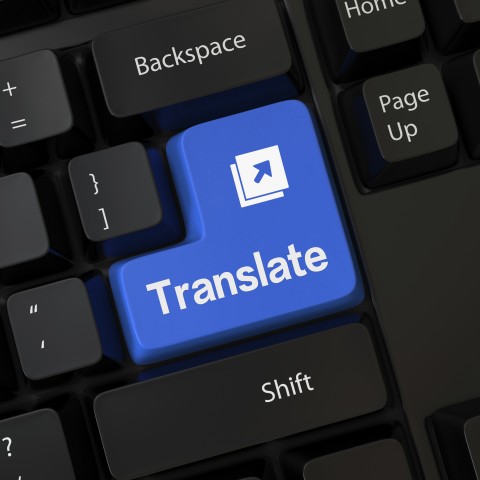
C- When Can the Bulgarian FLPE Exam be Taken?
The FLPE exam is administered by the Office of Academic and Student Affairs of the Graduate School of Arts and Science, and takes place three times per year: in March, August, and November. Upfront registration is required.
D- What is the Fee for Taking this Exam?
The registration fee is $25 and should be paid within four days of registering for this exam. There are three ways to pay the New York University: by submitting the fee in person, via a money order, or via postal mail.
5. Official ACTFL Oral Proficiency Interview (OPI)
A- General Information About the Exam
The ACTFL OPI test is a reliable way to assess the language knowledge of a person in the form of an interview. It’s conducted by a certified ACTFL tester who leads the one-on-one interview for about 30 minutes. The best part about the test is that it’s adapted to the speaker’s abilities and preferences, and it’s interactive enough to make the candidate feel relaxed during the exam.
The OPIc version of the ACTFL test is conducted online through the so-called “live” OPI, and is led by a computer program. However, Bulgarian is not yet included in this internet-based version.
The assessment of the Bulgarian exam can be used for various purposes, such as: employment selection, college credit, placement, linguist and teacher credentialing, etc.
- ► If you’re interested in learning how to apply for a specific job in Bulgarian, BulgarianPod101.com offers a series of lessons dedicated to job interviews.
B- Specific Information About the Bulgarian OPI Test

The OPI test is conducted by a certified ACTFL tester in the form of a telephone conversation that lasts between 15 and 30 minutes. During this conversation, the tester identifies the candidate’s strengths and weaknesses in various language aspects. The conversation follows a strict protocol and structure that ensures the assessment is reliable.
It consists of four parts: Warm-up, Level checks, Probes, and Wind-down. Here’s more information about what each of these parts involves:
- Warm-up – This phase is an introduction to the exam. It includes greetings, conversation openers, and other informal pleasantries.
- Level checks – During this phase, the tester involves the candidate in conversation on different topics that the speaker is interested in to check his level. Each check looks at different linguistic tasks that the candidate should succeed at.
- Probes – This phase is intended to reveal the limits of the candidate’s proficiency by raising the level higher. When the speaker reaches the point that he or she can no longer sustain functional conversation, the interviewer can clearly see the limits of the candidate’s skills and knowledge.
- Wind-down – This is the final phase, and it’s designed to return the candidate to the language level he or she is most comfortable with. The OPI exam ends on a positive note.
There are three possible scales for assessment, which are:
- ► The ACTFL scale that determines the candidate’s level somewhere between Novice and Superior
► Interagency Language Roundtable (ILR) scale with five levels between ILR 0 (No Proficiency) and ILR 5 (Functionally Native)
► The CEFR scale that determines the candidate’s level between A1 and C2
C- What is the Fee for Taking this Bulgarian Language Exam?
There are two versions of the exam, and the fee is determined based on your choice. These are:
- The certified OPI exam, which is conducted by two raters. The official OPI certificate costs $136.88.
- The commercial OPI test that’s conducted by one rater and costs $109.12.
6. How BulgarianPod101 Can Help You Prepare for the Test
To pass your Bulgarian language exam successfully, you need to thoroughly prepare for it. Researching your preferred language test is very important, so that you’ll know in advance what requirements you have to conform to. Fortunately, BulgarianPod101.com has already done this research for you in this Bulgarian proficiency test guide, and we’ve provided you with the most important details about each Bulgarian language test you might be interested in taking.
Now, we would also like to give you the best tips to pass your Bulgarian exam:
- To get ready for your exam, you should spare at least 30 minutes a day for preparation. Don’t wait until the last minute, as you won’t have enough time to cover all of the required materials.
- Make your test preparation fun by studying topics in Bulgarian that you’re interested in. This will definitely enrich your vocabulary and allow you to have fun at the same time. Moreover, some of the Bulgarian exams are based on the candidates’ favorite topics and hobbies, so it’s an advantage to learn as much of the vocabulary related to your hobby as possible.
- Don’t be mediocre in your preparation. Do as much as you can to learn the more-complex details of Bulgarian. Your extra effort will pay off during the exam.
- Try to start using new words and phrases, as well as new grammar rules, immediately. The sooner you get used to them, the better; this is because using them right away ensures that they’ll become a part of your daily life. Use them multiple times per day until you’re confident using them.
- While you do your daily chores, try to think about what you’re doing in Bulgarian. For example:
- ❖ Сега мия чиниите. (Sega miya chiniite.) — “Now, I wash the dishes.”
❖ А сега пускам пералнята. (A sega puskam peralnyata.) — “And now, I start the washing machine.”
❖ След това ще прибера масата. (Sled tova shte pribera masata.) — “Then, I will clear the table.”
- If you don’t know some of the words you encounter, you can check them in your dictionary and repeat them until you remember them well. Another good option is to write new words on sticky notes and look at them every time you practice. This is a great option because it will also help you remember the right way to spell them.
- Speak with your Bulgarian friends only in Bulgarian. Do not turn to English as soon as you meet difficulties.
- Try to find some past Bulgarian exam papers online, so you can test your abilities. To avoid any surprises, show up more than ready for the test!
7. Conclusion
At BulgarianPod101.com, we believe that this Bulgarian proficiency test guide will help you get ready for any of the four Bulgarian language exams. However, you might still be interested in hiring a Bulgarian language expert who will better prepare you for your upcoming Bulgarian exam. You can choose your native Bulgarian teacher from our MyTeacher program to increase your chances of passing the test.
We would love to hear your opinion about this guide. Do you feel ready to pass a Bulgarian exam now, or do you need more information or practice? Let us know in the comments!

Bulgarian Keyboard: How to Install and Type in Bulgarian
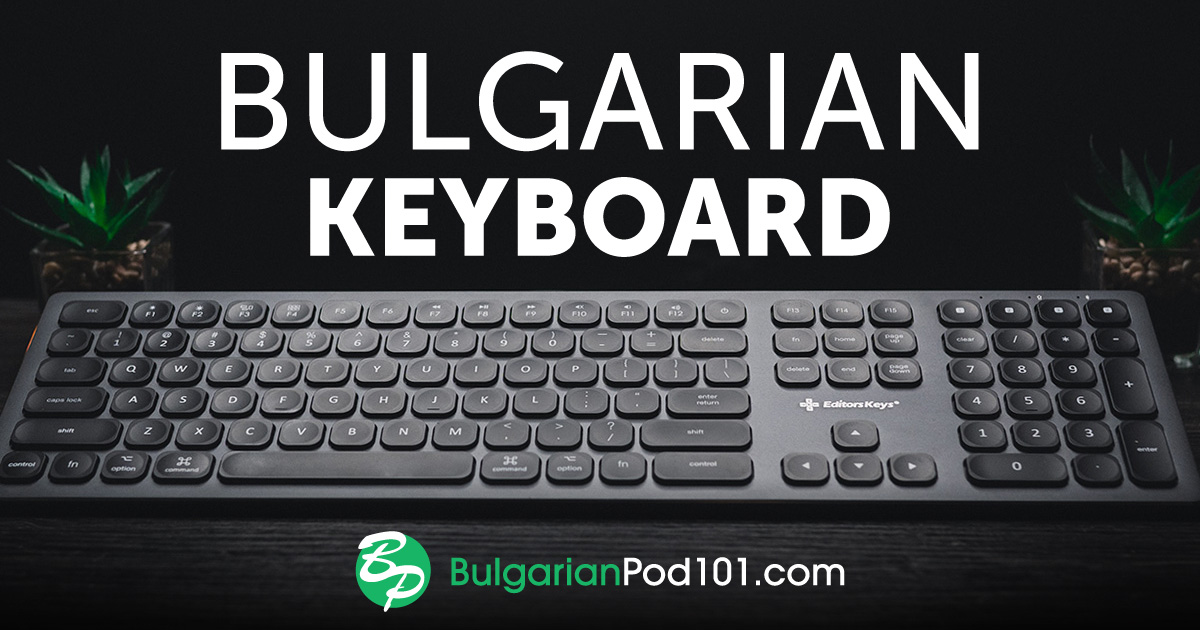
You asked, so we provided—easy-to-follow instructions on how to set up your electronic devices to write in Bulgarian! We’ll also give you a few excellent tips on how to use this keyboard, as well as some online and app alternatives if you prefer not to set up a Bulgarian keyboard.
 Table of Contents
Table of Contents- Why it’s Important to Learn to Type in Bulgarian
- Setting up Your Computer and Mobile Devices for Bulgarian
- How to Activate an Onscreen Keyboard on Your Computer
- How to Change the Language Settings to Bulgarian on Your Computer
- Activating the Bulgarian Keyboard on Your Mobile Phone and Tablet
- Bulgarian Keyboard Typing Tips
- How to Practice Typing Bulgarian
1. Why it’s Important to Learn to Type in Bulgarian

Learning a new language is made so much easier when you’re able to read and write/type it. This way, you will:
- Get the most out of any dictionary and Bulgarian language apps on your devices
- Expand your ability to find Bulgarian websites and use the various search engines
- Be able to communicate much better online with your Bulgarian teachers and friends, and look super cool in the process!
2. Setting up Your Computer and Mobile Devices for Bulgarian
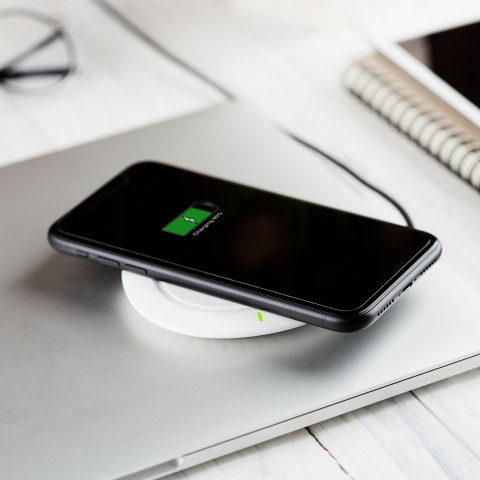
It takes only a few steps to set up any of your devices to read and type in Bulgarian. It’s super-easy on your mobile phone and tablet, and a simple process on your computer.
On your computer, you’ll first activate the onscreen keyboard to work with. You’ll only be using your mouse or touchpad/pointer for this keyboard. Then, you’ll need to change the language setting to Bulgarian, so all text will appear in Bulgarian. You could also opt to use online keyboards instead. Read on for the links!
On your mobile devices, it’s even easier—you only have to change the keyboard. We also provide a few alternatives in the form of online keyboards and downloadable apps.
3. How to Activate an Onscreen Keyboard on Your Computer
1- Mac
1. Go to System Preferences > Keyboard.
2. Check the option “Show Keyboard & Character Viewers in Menu Bar.”
3. You’ll see a new icon on the right side of the main bar; click on it and select “Show Keyboard Viewer.”
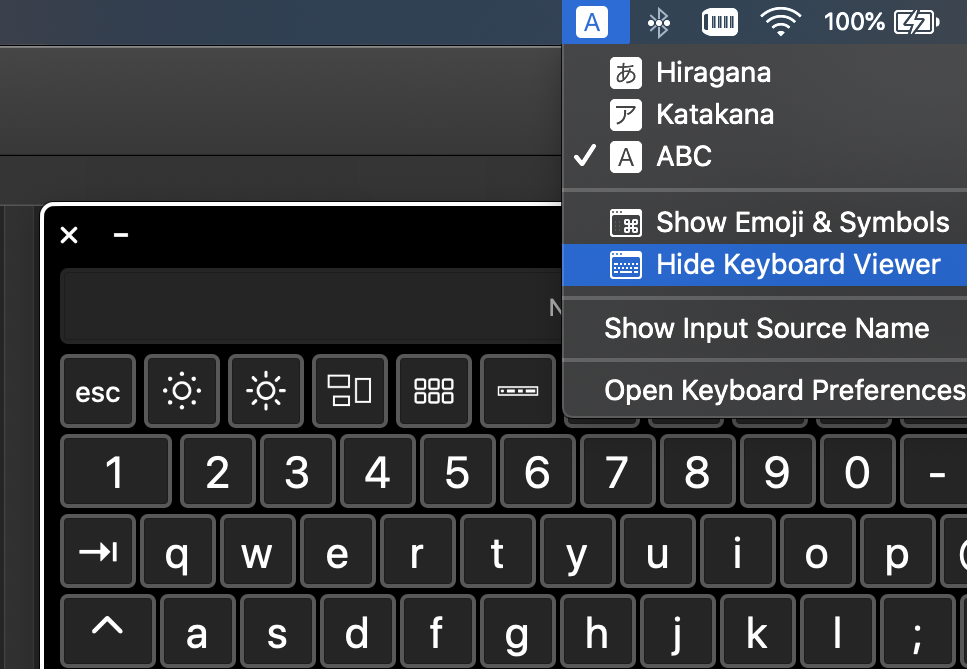
2- Windows
1. Go to Start > Settings > Easy Access > Keyboard.
2. Turn on the option for “Onscreen Keyboard.”
3- Online Keyboards
If you don’t want to activate your computer’s onscreen keyboard, you also have the option to use online keyboards. Here are some good options:
4- Add-ons of Extensions for Browsers
Instead of an online keyboard, you could also choose to download a Google extension to your browser for a language input tool. The Google Input Tools extension allows users to use input tools in Chrome web pages, for example.
4. How to Change the Language Settings to Bulgarian on Your Computer

Now that you’re all set to work with an onscreen keyboard on your computer, it’s time to download the Bulgarian language pack for your operating system of choice:
- Windows 8 (and higher)
- Windows 7
- Mac (OS X and higher)
1- Windows 8 (and higher)
- Go to “Settings” > “Change PC Settings” > “Time & Language” > “Region & Language.”
- Click on “Add a Language” and select “Bulgarian.” This will add it to your list of languages. It will appear as Български with the note “language pack available.”
- Click on “Български” > “Options” > “Download.” It’ll take a few minutes to download and install the language pack.
- As a keyboard layout, you’ll only need the one marked as “Bulgarian – Български.” You can ignore other keyboard layouts.
2- Windows 7
- Go to “Start” > “Control Panel” > “Clock, Language, and Region.”
- On the “Region and Language” option, click on “Change Keyboards or Other Input Methods.”
- On the “Keyboards and Languages” tab, click on “Change Keyboards” > “Add” > “Bulgarian.”
- Expand the option of “Bulgarian” and then expand the option “Keyboard.” Select the keyboard layout marked as “Bulgarian.” You can ignore other keyboard layouts. Click “OK” and then “Apply.”
3- Mac (OS X and higher)
If you can’t see the language listed, please make sure to select the right option from System Preferences > Language and Region
1. From the Apple Menu (top left corner of the screen) go to System Preferences > Keyboard.
2. Click the Input Sources tab and a list of available keyboards and input methods will appear.
3. Click on the plus button, select “Bulgarian,” and add the “Bulgarian” keyboard (not the “Bulgarian – Phonetic”).
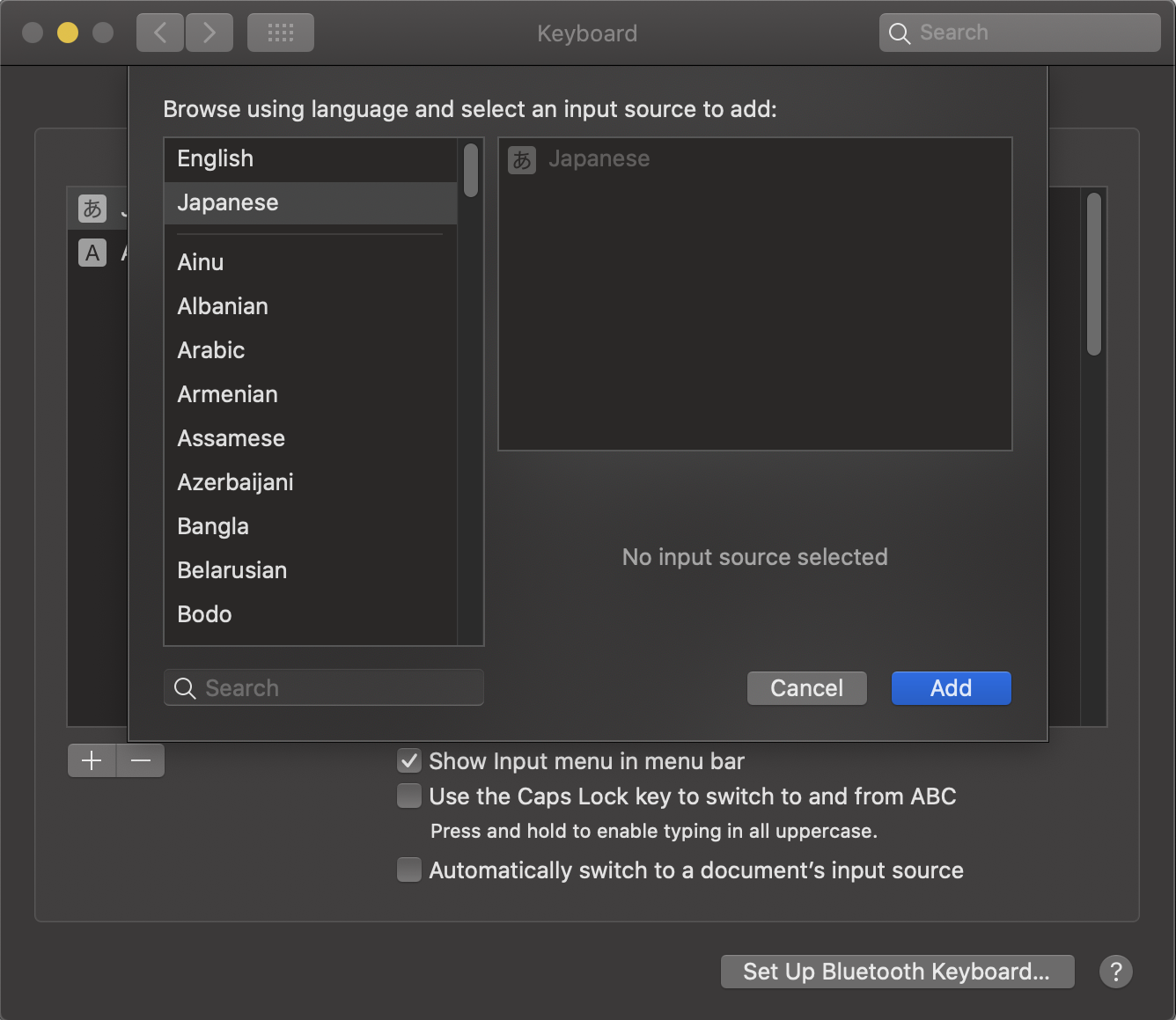
5. Activating the Bulgarian Keyboard on Your Mobile Phone and Tablet
Texting and searching in Bulgarian will greatly help you master the language! Adding a Bulgarian keyboard on your mobile phone and/or tablet is super-easy.
You could also opt to download an app instead of adding a keyboard. Read on for our suggestions.
Below are the instructions for both iOS and Android mobile phones and tablets.
1- iOS
1. Go to Settings > General > Keyboard.
2. Tap “Keyboards” and then “Add New Keyboard.”
3. Select “Bulgarian” from the list.
4. When typing, you can switch between languages by tapping and holding on the icon to reveal the keyboard language menu.
2- Android
1. Go to Settings > General Management > Language and Input > On-screen Keyboard (or “Virtual Keyboard” on some devices) > Samsung Keyboard.
2. Tap “Language and Types” or “ + Select Input Languages” depending on the device and then “MANAGE INPUT LANGUAGES” if available.
3. Select “Български” from the list.
4. When typing, you can switch between languages by swiping the space bar.
3- Applications for Mobile Phones
If you don’t want to add a keyboard on your mobile phone or tablet, this is a good app to consider:
6. Bulgarian Keyboard Typing Tips
Typing in Bulgarian can be very challenging at first! Therefore, we added here a few useful tips to make it easier to use your Bulgarian keyboard.

1- Computer
- When you go to add the Bulgarian keyboard, you’ll notice that there are usually two options: BDS (or standard), and Phonetic. The standard keyboard is the classical one; the Phonetic uses the Latin letters, and when you type them, you get the Bulgarian letter closest to the Latin sound.
- On Mac, if you select Phonetic, you can easily switch to BDS with Ctrl+Space. However, beware of some special keys which produce some special letters from the Bulgarian alphabet:
- q = я
- w = в
- y = ъ
- [ – ш
- ] – щ
- j = й
- x = ь
- c = ц
- ` = ч
- v = ж
- = ю
- Decimal separators in Bulgarian and English differ. For example: English – 105.20 EUR. Bulgarian – 105,20 EUR. English: – 1,005.20 EUR. Bulgarian – 1000,50 EUR. English – 10,005 EUR, Bulgarian: – 10 005 EUR or 10005 EUR.
2- Mobile Phones
- Most often, you can choose between BDS or Phonetic Bulgarian keyboards when you install one on mobile.
- It’s best if you pick one and use it across different devices. While on desktop the Latin letters might be of some help, on mobile you directly see the Cyrilic characters both with the BDS and the Phonetic options.
- Decimal separators in Bulgarian and English differ. For example: English – 105.20 EUR. Bulgarian – 105,20 EUR. English – 1,005.20 EUR. Bulgarian – 1000,50 EUR. English – 10,005 EUR, Bulgarian – 10 005 EUR or 10005 EUR.
7. How to Practice Typing Bulgarian
As you probably know by now, learning Bulgarian is all about practice, practice, and more practice! Strengthen your Bulgarian typing skills by writing comments on any of our lesson pages, and our teacher will answer. If you’re a BulgarianPod101 Premium PLUS member, you can directly text our teacher via the My Teacher app—use your Bulgarian keyboard to do this!

How to Find a Job in Bulgaria
Moving to a foreign country is a challenging experience, especially when it comes to searching for a job.
Since Bulgaria entered the European Union in 2007, the country has become a more attractive destination for foreigners to live in. Reasons for this include the thriving economy, reasonable living expenses, and various opportunities for non-natives to find jobs in Bulgaria. Since English is quite popular in the country, some of these jobs don’t even require knowledge of the Bulgarian language.
That said, having some knowledge of Bulgarian will give you a great advantage in your search for work. BulgarianPod101 aims to teach you everything you should know about the Bulgarian language and culture before your move, and today we’ll be discussing your options when it comes to your job search.
In this article, you’ll learn how to find a job in Bulgaria regardless of your current Bulgarian proficiency level. After all, the best way to study and internalize a language is to live among people who speak that language! Working with Bulgarians might just be the key to mastering the language and further advancing your career in this beautiful country.
Let’s dive in!

 Table of Contents
Table of Contents
- The Best Bulgarian Cities to Find Jobs as a Foreigner
- Bulgarian Websites to Search for Vacancies
- Other Places to Find Vacancies
- Language Teaching Jobs
- Online and IT-Related Job Opportunities
- Health-Related Jobs
- Tips for Part-Time Job Seekers
- How BulgarianPod101 Can Help You Learn Bulgarian
1. The Best Bulgarian Cities to Find Jobs as a Foreigner
Typically, the big cities in Bulgaria offer many more job opportunities than the smaller towns. The bigger the city is, the more vacancies you’ll find. This means that the Bulgarian capital Sofia is the place that offers the largest variety of job opportunities for foreigners who would like to practice their profession in Bulgaria.
Other cities with multiple job opportunities include Plovdiv, Varna, and Burgas.
This doesn’t mean that you can’t find a job in smaller cities and towns, but it’s easier to find opportunities for professional development in bigger cities like the ones mentioned above.
In order to further increase your chances of finding the right job in Bulgaria, you’ll need to have a permanent residence status. This document assures your Bulgarian employer that: you’re serious about your job, that you intend to stay in the country long-term, and that he/she may rely on your commitment to develop the company you’ll be working for.
How are job interviews conducted in Bulgaria?
If you’ve applied for a job in the U.K. or other countries in Europe before, then you already have an idea of how the job interview in Bulgaria could be conducted, as the process is similar. After sending your application, the employer will invite you to an interview if he/she finds you appropriate for the vacancy.
Since many industries in Bulgaria—such as teaching, IT, tourism, etc.—require a fluent level of English, you have a good chance of getting the job even if your Bulgarian isn’t up to par yet. The interviewer will ask you some questions that are typical for a job interview, like:
- What is your education?
- What is your experience in this field?
- Can you work efficiently in a team?
- How can you help the company grow?
- What is your preferred salary?
If you would like to try taking your job interview in Bulgarian, this lesson from BulgarianPod101 will help you prepare for it with the necessary vocabulary.

2. Bulgarian Websites to Search for Vacancies
There are some great Bulgarian job websites that can help you find vacancies to apply for. Browsing through the available offers and applying to jobs you’re interested in is the most convenient way to get a job. These websites typically offer job categories, so you can save time in your research. You’ll have to go through a quick and easy sign-up process to make a profile and select your preferences. After that, you’ll be notified by email about all new vacancies that meet your criteria.
So, let’s take a look at a list of job websites in Bulgaria you can use to search for jobs as a foreigner:
- Jobs.bg: This is the most popular search engine for vacancies and courses. It has an English version and allows you to search by specific location, category, job type, etc.
- Rabota.bg: This great website for job searching is only in Bulgarian, so you’ll have to know at least a little Bulgarian to be able to use it. Still, the search engine on this website allows people to use some English keywords to find a job (marketing, expert, IT, Cloud, developer, etc.).
- JobTiger: This is another popular search engine that has an English version. Thanks to the courses available on this website, you can learn how to apply successfully for a job.
- Zaplata.bg: This popular job portal has English and Russian versions. It’s considered the biggest website for job opportunities in Bulgaria, so it provides multiple job listings. In addition to available standard jobs, there are vacancies with an URGENT label that need applicants as soon as possible.
- Jobs Agents: Here’s another great website with an English version that can help you find a job not only in a specific region of Bulgaria, but also in other countries.
- European Job Mobility Portal: This European portal, created by the European Union, is another great tool for finding available jobs in Bulgaria and other European countries. Currently, there are more than 4600 vacancies in Bulgaria listed here.
3. Other Places to Find Vacancies
Job websites are not the only places where foreigners can find jobs in Bulgaria. Some other sources include newspapers, recruitment agencies, career fairs, and references from friends or relatives. The more options you have for finding a job, the greater your chances are of finding a desired vacancy related to your skills and professional experience. We’ll take a closer look at these other sources below:
Newspapers
Many Bulgarian newspapers provide dedicated sections for job listings. These newspapers include:
There’s also a popular newspaper that’s completely dedicated to ads including those for job listings, where you can find a lot of vacancies every day. This newspaper is Позвънете (Pozvanete), and it’s widely used by job seekers in Bulgaria.
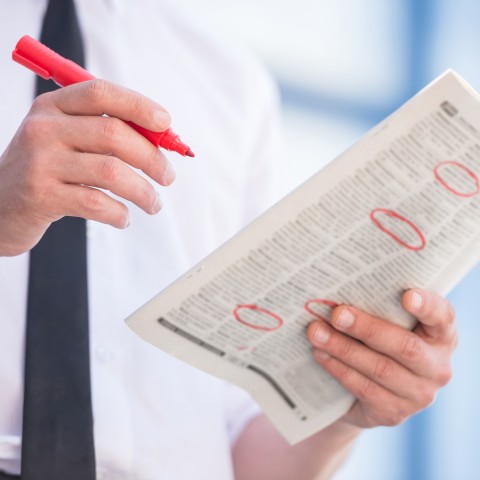
Recruitment Agencies
Many people in Bulgaria prefer to use the services of recruitment agencies, which search for an appropriate job according to your preferences, education, and experience. These agencies have contracts with large companies, which provide them with available vacancies as soon as they arise; they’re committed to finding the right candidates for these positions. After the person is successfully hired, the agency takes a percentage of that person’s first salary as payment. This is a safe and time-saving way to find a desirable position.
Some of these recruitment agencies are specialized in a particular industry. This could be accounting, IT, nursing, construction, catering, tourism, etc. You can search for the best recruitment agency based on your field.
Bulgarian Career Fairs
Bulgaria regularly conducts job fairs that are intended to connect job seekers with their future employers. They are usually free to attend, but some of them may require upfront online registration. During these career fairs, people can meet with a large number of recruiters to get an idea of their companies and what skills are required for specific vacancies. It’s a good idea to attend these fairs with a resume and to arrive well-dressed, as first impressions are very important in business meetings.
- ➜ In this lesson from BulgarianPod101, you can prepare for your next Bulgarian business meeting and gain the confidence you need to succeed.

Personal Contacts
It would be wise to tell your relatives and friends that you’re looking for a job, as personal contacts and references often play a huge role in finding good jobs. Many employers in Bulgaria don’t post advertisements about job vacancies, but rather tell their acquaintances who may know someone interested in the specific job position. So, the more people know about your need to find a job in Bulgaria, the greater your chances are of getting a call from a potential employer.
4. Language Teaching Jobs
One of the best jobs in Bulgaria for English speakers is being an English teacher. If you have such education, you’re very likely to land a teaching job in public or private schools. However, even without that education, you can find a job in Bulgaria as a private teacher for personal lessons. This is especially true if you have extraordinary English skills and have taken TOEFL, IELTS, or a similar exam to prove it.
Being a teacher in a public sector provides you with many benefits, such as a good salary, paid holidays, social security, etc. The best time to apply for an English school teacher job is in August, as the school boards start to function from the beginning of September after the summer holiday. That said, you’ll still have chances to find vacancies until the beginning of the school year on September 15.
In order to apply for such a job, you need to submit your application along with your resume to the school, which will ask the approved applicants for an interview. During the interview, the applicant may be asked to teach a sample lesson or even to complete a grammar test. It’s common in Bulgaria for school teachers to also give private lessons to earn extra income.
➜ Some schools may prefer candidates who are fluent in Bulgarian. BulgarianPod101 provides you with great guidance on how to pass your Bulgarian language exam.

5. Online and IT-Related Job Opportunities
Another one of the best work opportunities in Bulgaria for foreigners is online jobs. The country has a well-developed system of internet suppliers with excellent connectivity, even in the remote and rural regions. If you can continue working from home, you don’t even have to search for a new job when moving to Bulgaria.
What if you would like to search for work from home jobs in Bulgaria that will allow you to practice your profession? You can search for the right job opportunity using the following online job portals:
What types of online jobs are available?
If you work in the IT sector, you can easily find an online job wherever you live. Many companies have vacancies for web developers, mobile and app developers, SEO consultants, social media marketers, technical support representatives, and similar positions.
6. Health-Related Jobs
Like some other countries around the world, Bulgaria has a lack of medical professionals. This means that people who have education in the field of medicine can easily find work not only in the big Bulgarian cities (Sofia, Plovdiv, and Varna), but also in the smaller towns and even villages.
Typically, the salaries of medical doctors in Bulgaria are almost four times the average salary here, so this job ensures a good standard of living. Unfortunately, this is not the case with the salaries of nurses and janitors—they’re often underpaid for their long working hours.
Medical workers receive the following benefits: health insurance, retirement plan, training courses, opportunities for career development, and the opportunity to choose a preferred work type or schedule (full-time job, part-time job, night shift, temporary job, or self-employment).
Foreigners who would like to work as medical professionals in Bulgaria need to have advanced Bulgarian language skills.
- ➜ BulgarianPod101 has prepared this list of the 20 most useful phrases when talking to a doctor. Make sure to check it out and brush up on your vocabulary before your move.
Where can you apply for a health-related job in Bulgaria?
There are several online sources where you can search for health-related jobs in Bulgaria. Usually, listings provide a detailed description of the work, the required skills, and other specifics. These sources include:
7. Tips for Part-Time Job Seekers
People searching for part-time jobs in Bulgaria have multiple options, even if they’re not students. This job could be in the fields of:
- Babysitting
- Office work
- Gardening
- Security
- Working from home as a writer, translator, private teacher, etc.
It all depends on your preferences, financial needs, and other time commitments.
There are some great benefits for foreigners who start working a part-time job in Bulgaria:
- Part-time jobs help you gain the set of practical skills needed for your profession.
- Working with Bulgarians will greatly improve your Bulgarian language skills. This work will also give you the chance to socialize with local people.
- Eventually, part-time jobs could lead to full-time jobs.
- Part-time jobs provide you with excellent experience that could be included in your CV and will provide you with recommendations for future full-time jobs.

- You can learn the names of different professions in Bulgarian along with their pronunciation in this list from BulgarianPod101.
#1: You can search for part-time jobs in Bulgaria depending on your qualifications and education. You can take advantage of recruitment agencies to help you find a job, or you can search on your own in local newspapers or online job websites and other sources. The other option is to tell your Bulgarian friends that you’re searching for such a job and they may be able to refer you to the right person. If you know a friend who already works a part-time job, you can ask him/her whether there are vacancies within the same company.
#2: Hoping to work only weekends to make some extra money? Things like office cleaning or driving tourists for sightseeing are especially good for English speakers. Also, many students search for native English teachers to take private lessons with, so this is another good option to complement your earnings.
#3: Some other part-time jobs include online tasks like social media advertising, writing web content for different online companies, etc.
#4: Besides online work, there are many other offline opportunities for part-time jobs. These include working in restaurants or fast-food joints, showrooms, grocery stores, fuel pumps, amusement parks, etc. The sky’s the limit.
8. How BulgarianPod101 Can Help You Learn Bulgarian
BulgarianPod101 has prepared this comprehensive guide to help you find your ideal job in Bulgaria. The better your Bulgarian language skills, the greater your chances are of having a great experience as you live and work in Bulgaria. Even though there are opportunities for non-Bulgarian speaking foreigners to find a job in Bulgaria (such as online or part-time jobs), most employers prefer a candidate with good Bulgarian speaking skills.
If you feel that you need personal guidance to learn Bulgarian more quickly and efficiently in order to land a job in Bulgaria, you can turn to MyTeacher. This Premium PLUS service from BulgarianPod101 allows you to learn and practice with a private teacher, who will know how to help you and greatly increase your chances of getting that dream job. Of course, our free lifetime account option also provides tons of useful resources on the Bulgarian language and culture, so make sure to check it out!
Before you go: Do you need any other specific information on how to find a job in Bulgaria? Don’t hesitate to share with us in the comments below—we’ll be glad to help out the best we can.

Secret Revealed: The Best Way to Learn a Language on Your Own

Can You Really Learn Bulgarian Alone?
Learning a language on your own or without traditional classroom instruction may seem quite daunting at first. What if you run into questions? How do you stay motivated and on track to achieving goals?
Don’t worry, not only is it possible to learn Bulgarian or any language without traditional classroom instruction: BulgarianPod101 has created the world’s most advanced and extensive online language learning system. Not only is BulgarianPod101 specifically designed to help you with learning a language on your own, it’s actually faster, more convenient, and less expensive than traditional classroom options!
Let’s look at some of the benefits of learning Bulgarian or any language alone.

Also, don’t forget to download your free cheat sheet – How to Improve Your Language Skills too!
3 Reasons to Learn a Language Alone

1. Learn at Your Own Pace and On Your Schedule
In today’s fast-paced world, there just isn’t time for traditional classroom instruction. Between getting to class and studying on some professor or teacher’s schedule, traditional classroom learning is simply impossible to fit in. But when you learn Bulgarian alone, you can study in bed if you like and whenever suits your schedule best, making it far easier to actually reach your goal of learning and mastering the language.
2. Learning a Language on Your Own Reduces Stress and Anxiety
Speaking in front of a class, pop quizzes, and tests are just a few of the stressors you will encounter when you learn a language in a traditional classroom setting. Specifically, these are external stressors that often derail most people’s dream of learning a new language. But when you learn Bulgarian alone, there are no external stressors. Without the external stress and anxiety, it becomes much easier and more exciting to study Bulgarian and reach your very own goals—all on your own!
3. Learning Bulgarian Alone Helps Improve Cognitive Function and Overall Success
Learning a language on your own is indeed more challenging in some ways than being taught in a traditional classroom setting. In fact, while classroom instruction requires more rote memorization and following instructions, studying a language on your own requires more problem-solving and higher cognitive function to self-teach lessons and hit goals. So while it’s more challenging and requires higher levels of cognition, teaching yourself a language pays dividends throughout life by better preparing you for social/work opportunities that arise.
How to Learn a Language on Your Own with BulgarianPod101

1. Access to the World’s Largest Collection of Bulgarian Audio & Video Lessons
The best way to learn a language on your own is to study from native speaking instructors. Ideally, you want audio and/or video lessons that teach vocabulary, grammar, and provide actual Bulgarian conversations and dialogue to help you with pronunciation. BulgarianPod101 has hundreds of hours of HD audio and video lessons created by real Bulgarian instructors and every lesson is presented by professional Bulgarian actors for perfect pronunciation. Plus, all lessons can be accessed 24/7 via any mobile device with Internet access. And, if you download the PDF versions of each lesson, you can even study without Internet access once the lesson is stored on your device!
2. “Learning Paths” with Bulgarian Courses Based Upon Your Exact Needs & Goals
Although BulgarianPod101 has more than thousands of video and audio lessons, you need not review each and every one to learn the language. In fact, BulgarianPod101 has developed a feature called “Learning Paths”. You simply tell us your goals and we will identify the best courses and study plan to help you reach them in the shortest time possible. So even though you are technically learning a language on your own, our team is always here to help and make sure you reach your goals FAST!
3. Advanced Learning Tools Reduce Learning Time and Boost Retention
When you have the right tools and Bulgarian learning resources, it’s actually easy to teach yourself a language! In the past 10+ years, BulgarianPod101 has developed, tested, and refined more than 20 advanced learning tools to boost retention and reduce learning time, including:
- Spaced Repetition Flashcards
- Line-by-Line Dialogue Breakdown
- Review Quizzes
- Voice Recording Tools to Help Perfect Pronunciation
- Teacher Feedback and Comments for Each Lesson
- Bulgarian Dictionary with Pronunciation
- Free PDF Cheat Sheets
- And Much More!
Armed with our growing collection of advanced learning tools, it’s truly a breeze to learn Bulgarian alone and reach your goals!
Conclusion
Learning a language on your own is not only possible, it’s actually easier and more beneficial for you than traditional classroom instruction. In fact, when you learn Bulgarian on your own you can study at your own pace, eliminate stress, and actually increase cognitive function.
BulgarianPod101 is the world’s most advanced online language learning system and a great resource to help you teach yourself a new language. With the world’s largest collection of HD audio and video lessons, more than 20 advanced learning tools, and customized “Learning Paths”, BulgarianPod101 makes learning a new language easier, more convenient, and less expensive than traditional classroom instruction.
And the best part is: With BulgarianPod101, you can study in bed, your car, or wherever you have a few spare minutes of time. Create your Free Lifetime Account now and get a FREE ebook to help “kickstart” your dream of learning a language on your own below!














